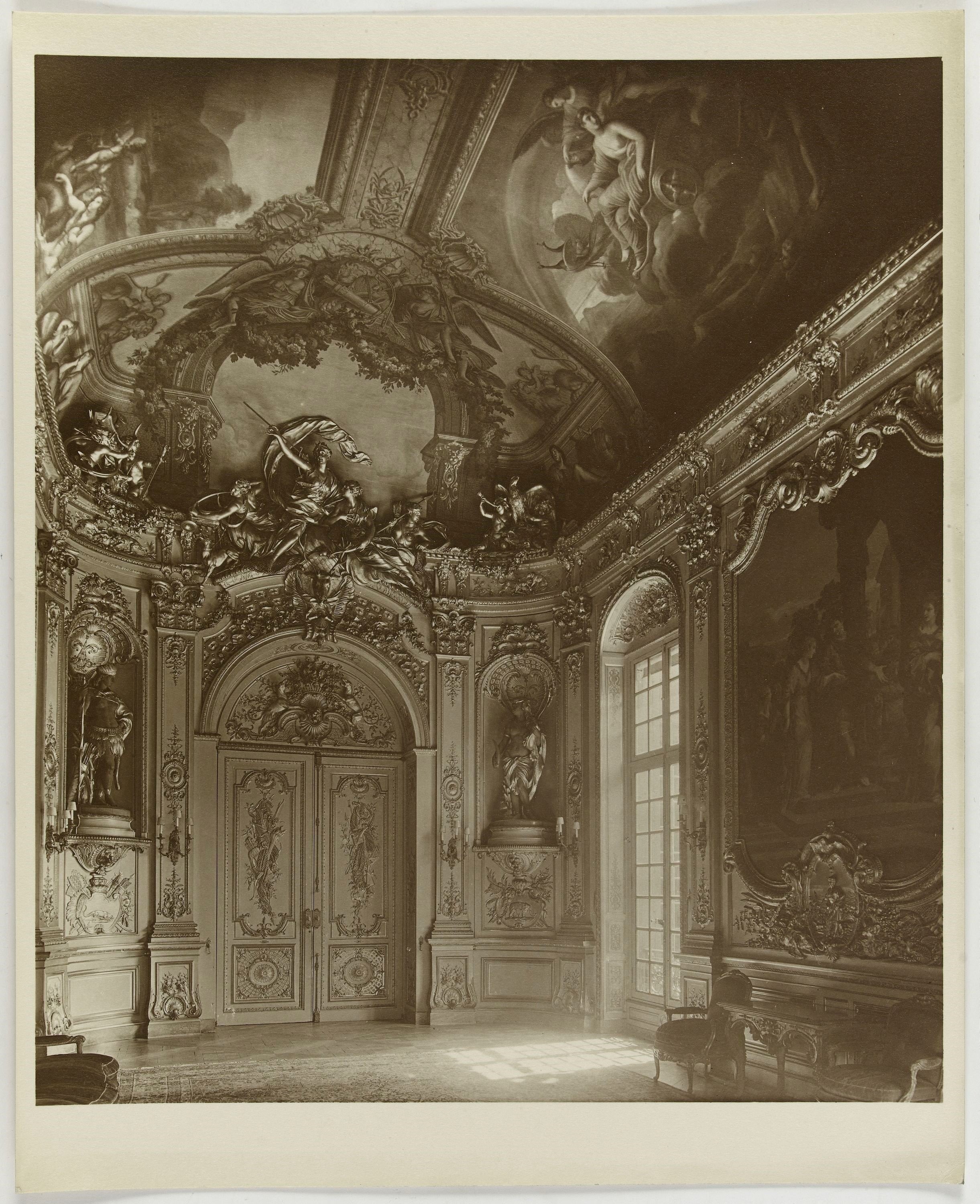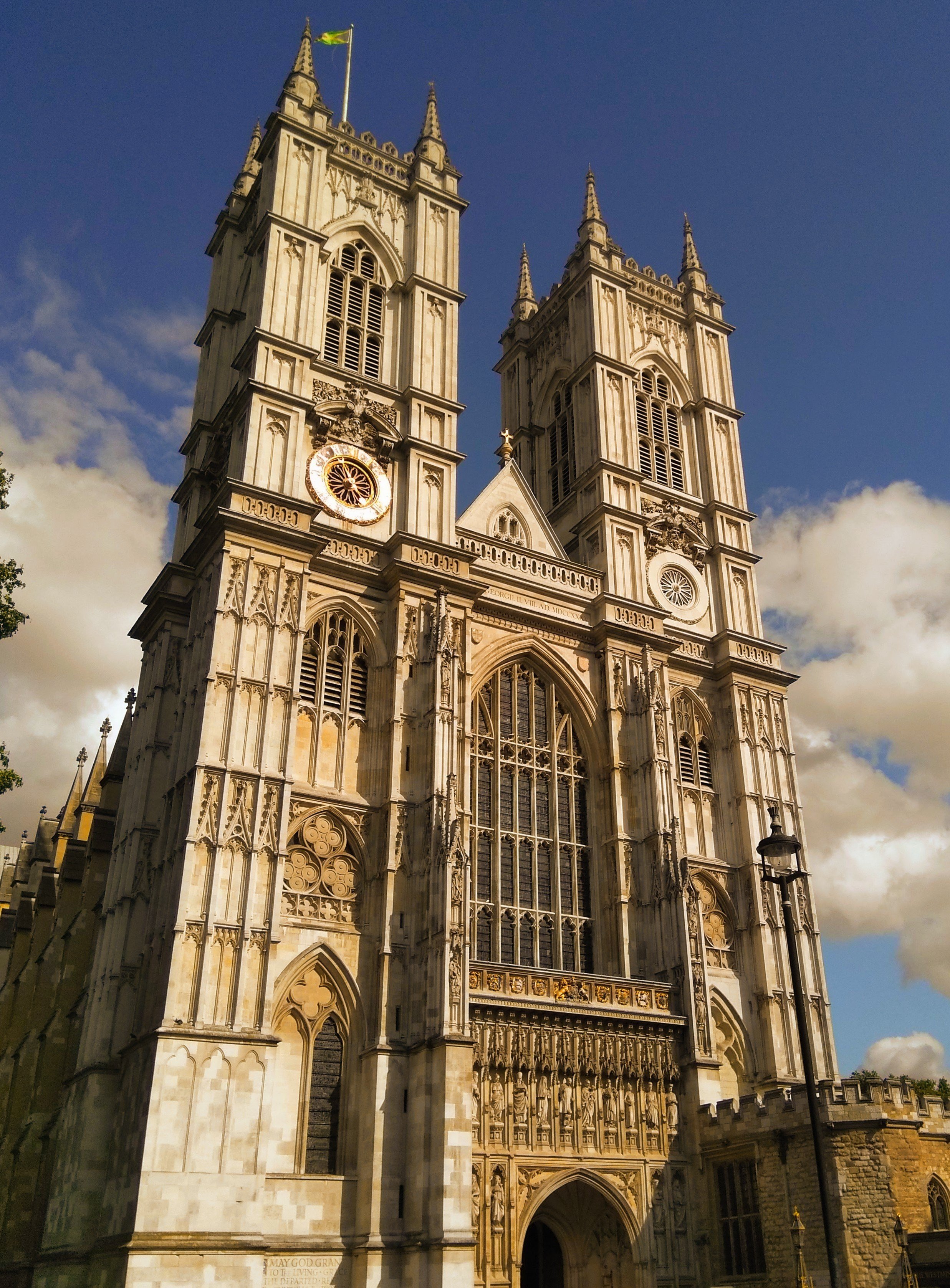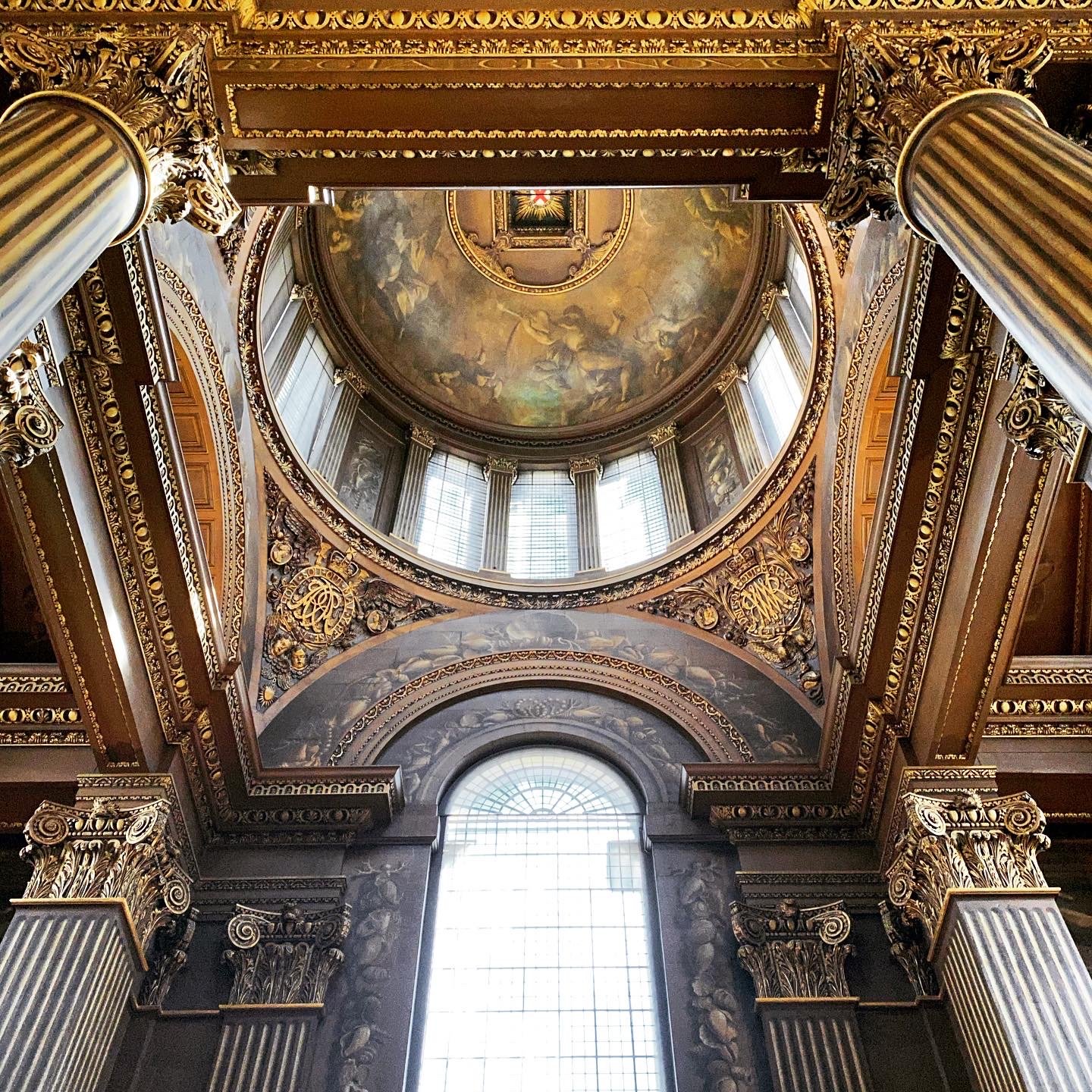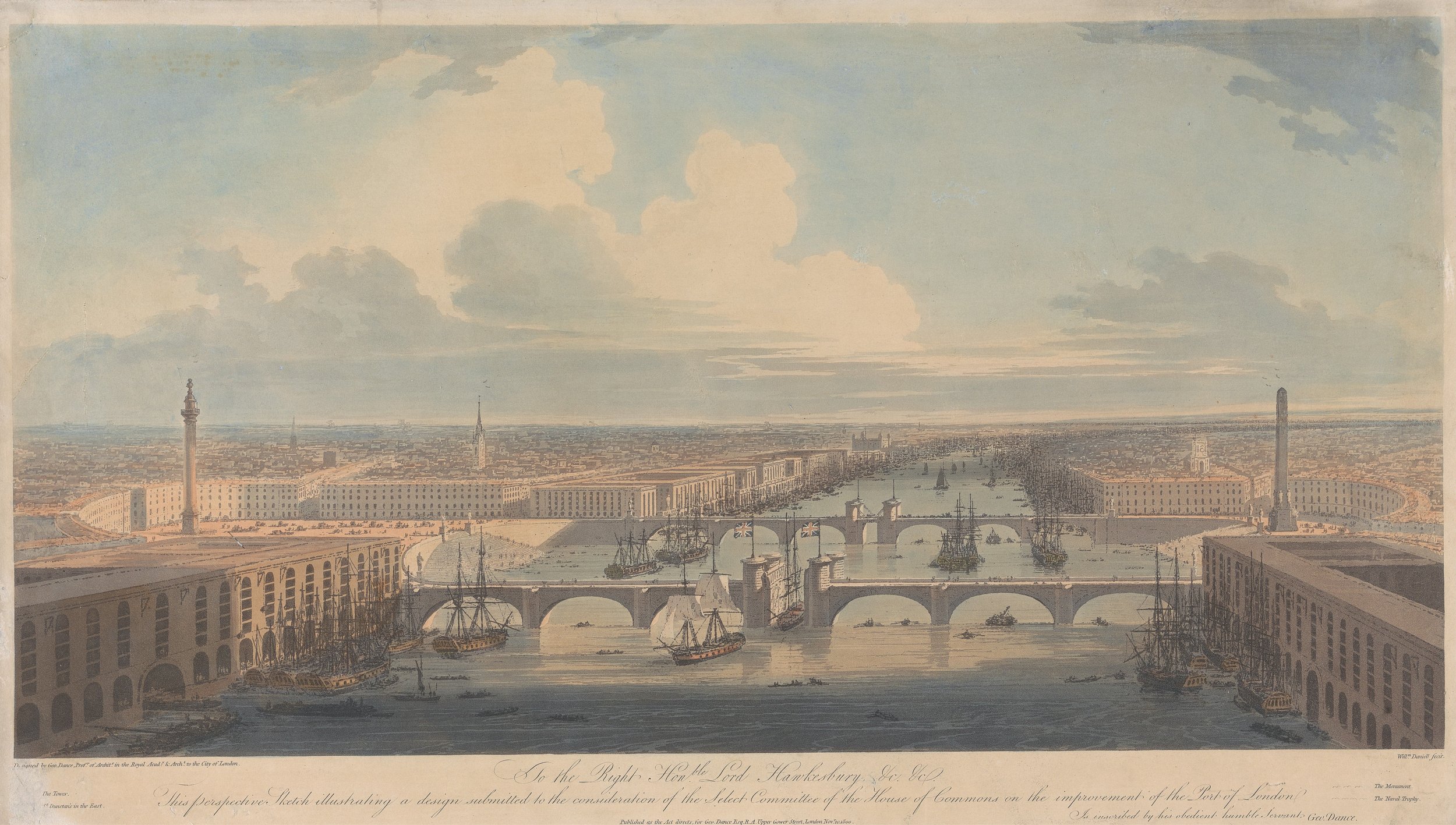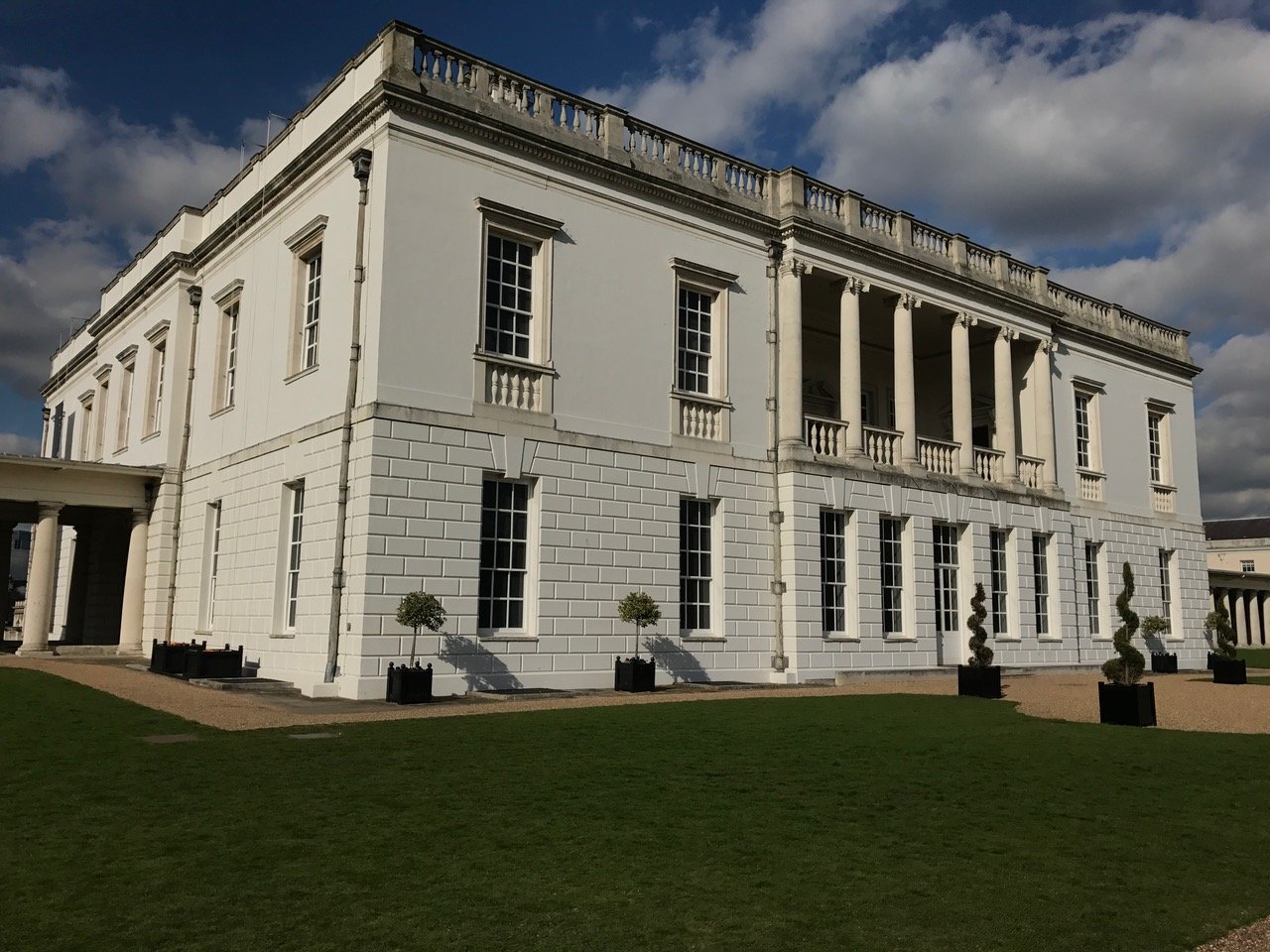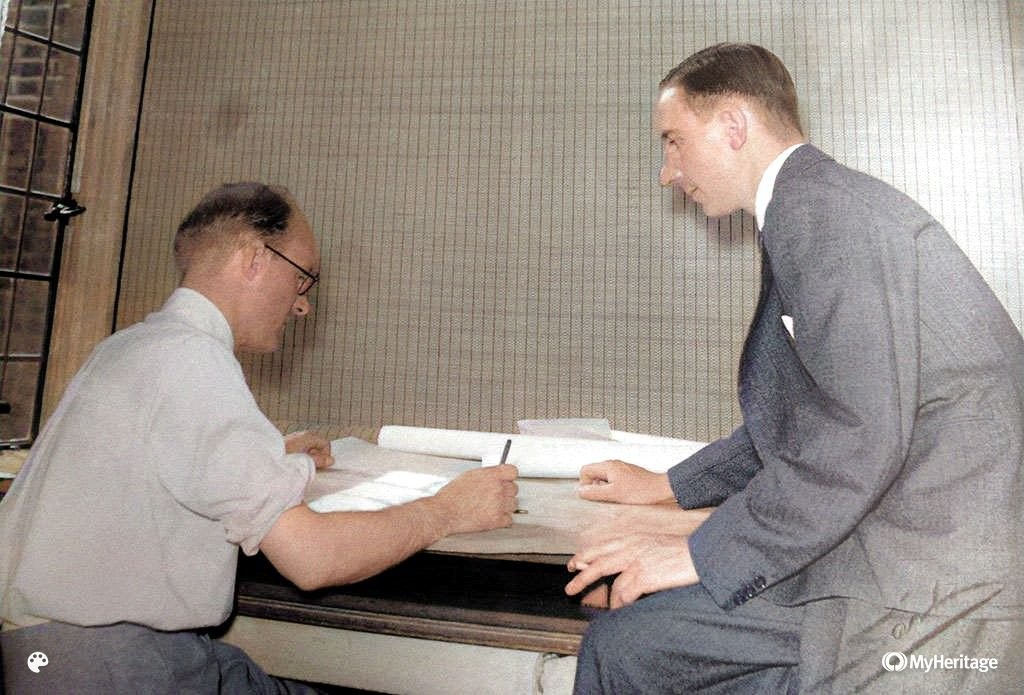
Seely and Paget in the 21st Century: Restoration and Reputation (Registrations closing soon)
Register to attend this one-day conference exploring the architects Seely and Paget, the restoration of their buildings and reputation of their work and life in the 21st century.
Registration will close on Friday 26 April (12 noon).
An event supported by five partners, this will take place in the fascinating surroundings of The Charterhouse, Clerkenwell.
Restoration and Reputation
Buildings of the architectural practice of Seely and Paget, between 1920s - c1970, were not greatly celebrated in their time, then largely overlooked as modernism became dominant through the second half of the twentieth century. While architecture of the period is now being reappraised, John Seely and Paul Paget’s personal relationship has also attracted comment.
This day conference, hosted in buildings which they restored after extensive bomb damage in 1941, will look at recent restorations of their buildings and how they alter assessments of Seely and Paget.
Image: Charterhouse, Master’s Court, used with permission
How to register:
Places at the conference are £38, to include lunch and refreshments.
The event will run from approx. 09:30 - 4:30
This is an in-person event though please note that it will be recorded.
Please scroll down to the form and watch for a message that will confirm your place. We will send further information to those registered for this event. To allow us to check registrations, these will be sent on working days: thank you for your patience.
For access and travel information, please explore the website of The Charterhouse. For further enquiries, please contact admin.ocmch@brookes.ac.uk
If you are interested in this conference, Dr Peter Forsaith, Research Fellow of the Oxford Centre for Methodism and Church History, Oxford Brookes University, will also be giving a lecture at Seely and Paget’s first major commission: St. Faith’s Church, Lee-on-the-Solent. This will take place on 23rd March, with further information here.
With thanks to all our supporting partners
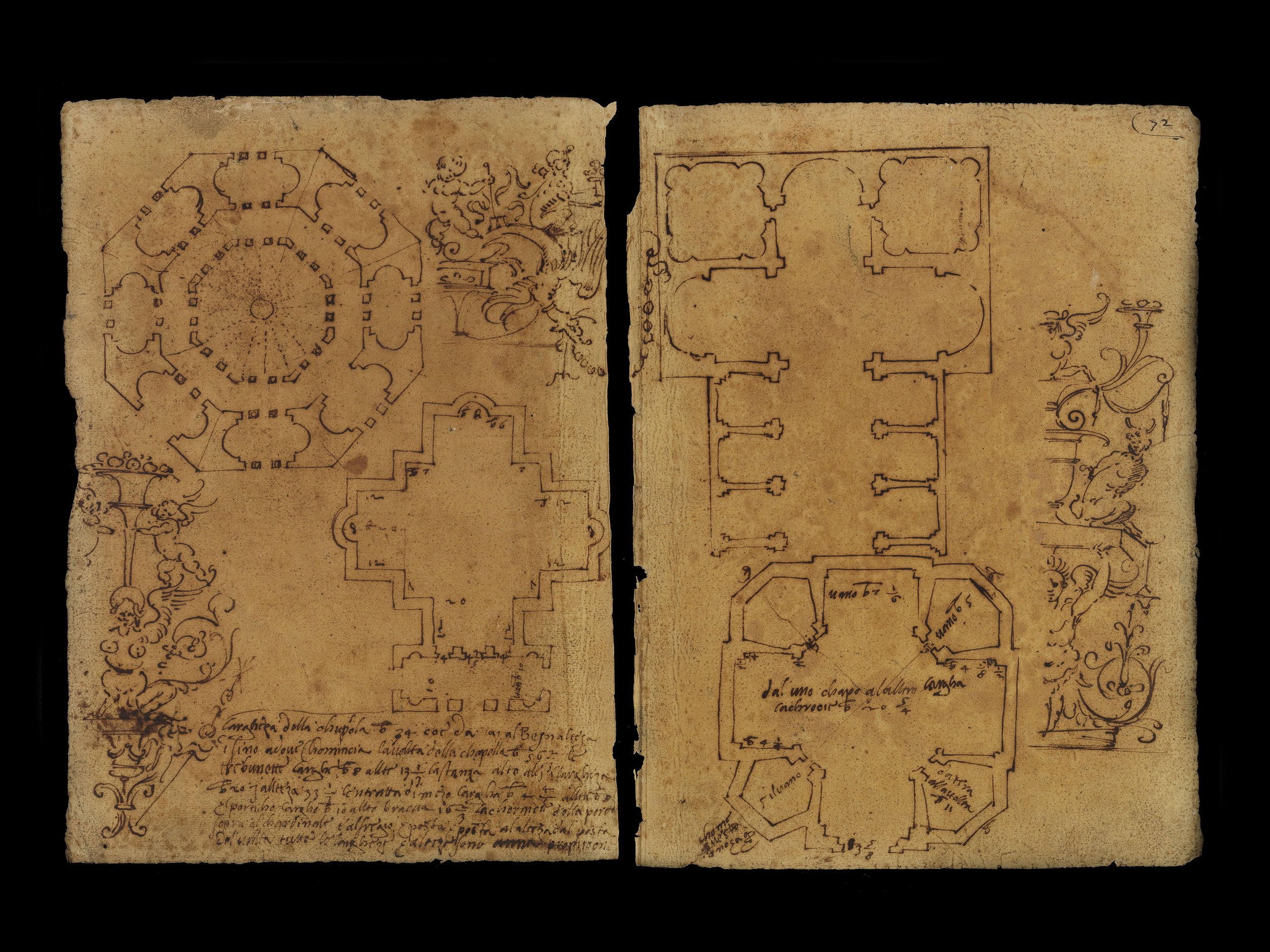
Seminar: Architectural Tracings and the Fragility of Design Authorship. Speaker: Elizabeth Merrill
Used with permission of Drawing Matter, inv. 2159.007
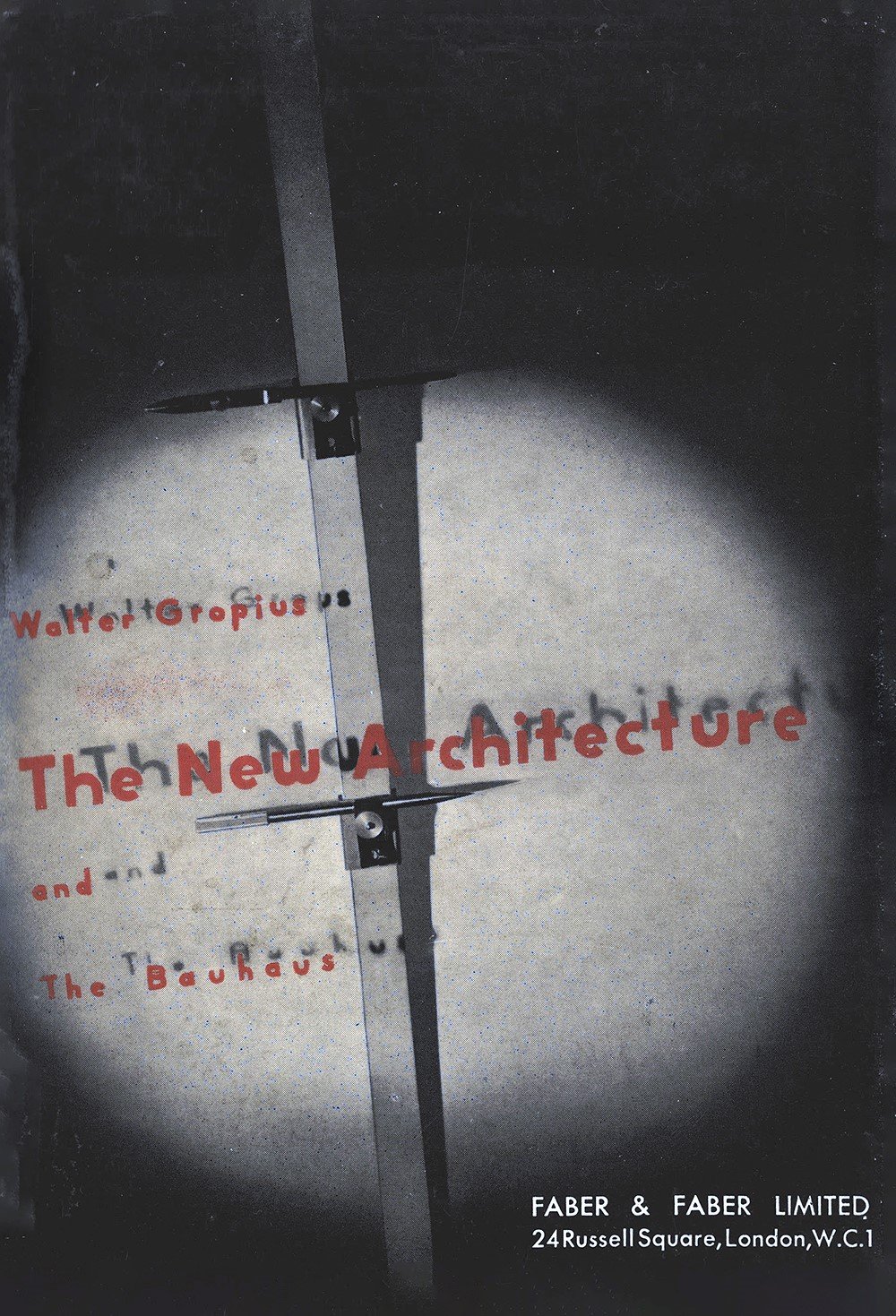
Seminar: The Network around Walter Gropius in Britain, 1934 - 37. Speaker: Alborz Dianat
This SAHGB - IHR seminar will be a hybrid event, taking place online and in person at the Institute of Historical Research, Pollard N301 (3rd Floor, North Block of Senate House, Malet St, London WC1E 7HU).
ABSTRACT
Bauhaus founder Walter Gropius emigrated from Nazi Germany to Britain in 1934.
This seminar investigates the role of those aiding his re-establishment. The promotion of Ise Gropius is considered, her fluency in English making up for her husband’s initial weakness. She was supported by the critic Philip Morton Shand, who laboured to appeal to British audiences while translating Gropius’s book, The New Architecture and the Bauhaus. Comparison with the original German manuscript reveals drastic revisions to domesticate alien ideas. The buildings Gropius produced in Britain demonstrate the architectural outcome of this domestication. His design of Impington Village College with Maxwell Fry, an attempt to engage with indigenous formal and sociological trends.
Adapted in both writing and architecture, Gropius was spared the intolerances affecting other foreign architects, particularly Jewish émigrés. Amid debates around British architectural identity, Gropius was falsely depicted as a temporary visitor sent by the German state: an inspirational exponent of nationalism. Based on archival research, this seminar considers how Britons co-opted Gropius to their cause, boosting his profile in Anglophone media, enabling his move to the United States in 1937, and encouraging his enduring dominance in histories.his is
Registration:
Please use the form below and watch for the pop-up message that will appear onscreen after you submit your details. You can copy the Zoom details that will be shown in this message, for those joining remotely.
BIO
Dr Alborz Dianat is a researcher at University College Dublin and Executive Editor of the SAHGB Journal, Architectural History. His book, Walter Gropius in Britain: Emigration and Collaborations, is scheduled to be published by Routledge.
Images:
Walter Gropius, The New Architecture and the Bauhaus, dust jacket by László Moholy-Nagy, 1935: Public Domain
Book A Place:
Calling SAHGB Members!
Our Early Career Researcher Symposium will take place at Birmingham City University in June 2024. Please look out for how to register for this. The Call for Papers is open until 10 May
We launched a new Fund for Publications in December in memory of the prolific Architectural Historian, Mark Girouard. We are fundraising and building a page to collect resources about his work, and to encourage gift-giving so that we can support and inspire with future grants.
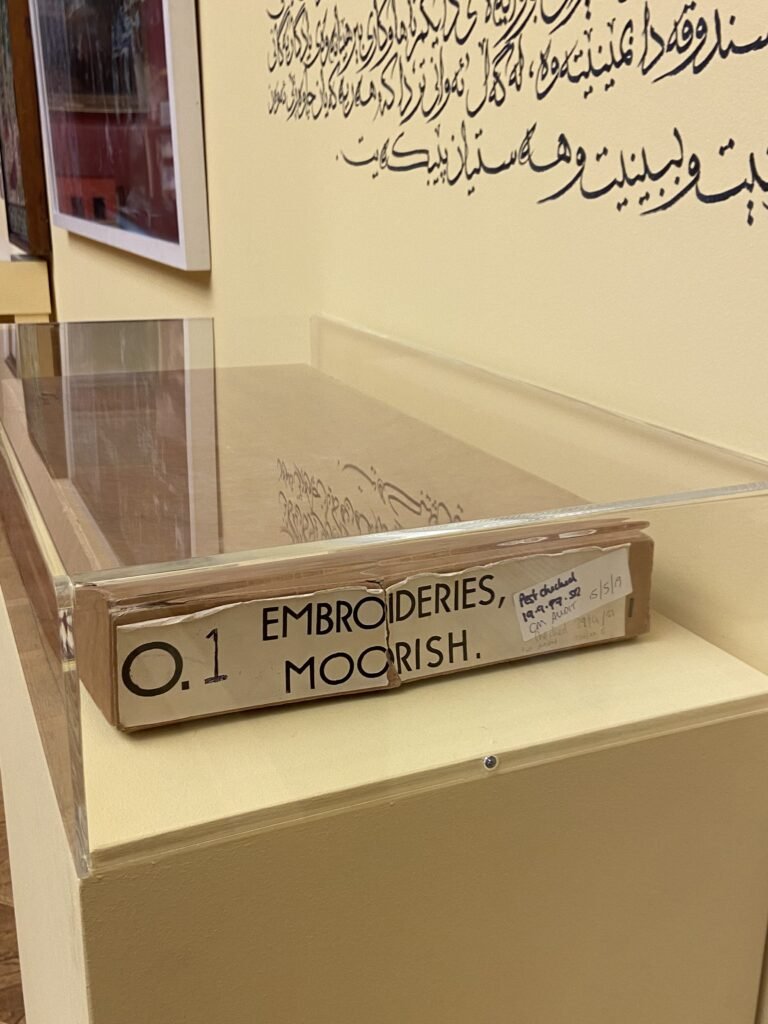
Re-Reading and Understanding the Narratives of the Other: The 2024 SAHGB Symposium
NARRATIVES OF THE OTHER:
There is increasing recognition that in order to foment real social progress, the acknowledgement of social struggles and the inclusion of voices, particularly of those from the ‘margins’, is required to alter entrenched social hegemonies. Such an imperative necessarily calls for the rewriting of architectural history.
This symposium is an invitation - in the wake of the awakenings which followed the killings of George Floyd, Breanna Taylor and others in the spring/summer of 2020 - to do just this! To challenge and subvert what is considered to be the “established” and the “canonical”.
The focus of this event is deliberately provocative and timely and we expect to see ‘othered’ voices come to the fore in what promises to be a fantastic two days.
SYMPOSIUM DETAILS:
Wednesday 26th June
Day 1 will consist of the Symposium itself chaired by Ann de Graft Johnson, founding member of legendary feminist design collective Matrix. Professor Renée Tobe of Leeds Beckett University - someone who has been working at the forefront of these issues for many years - will deliver the keynote.
Thursday 27th June
Day 2 will be a day of seminar and workshops for PhD candidates and early career workshops, where attendees will learn about the ins and outs of what to during the post-doc phase, such as publication,
SPEAKERS AND DELEGATES:
Abstracts are warmly invited from Early Career and PHD researchers, both members and non-members, for this event and the call is open until 10 May. If you would like to enter a proposal for this event, please follow the guidance and contact the team on the CALL FOR PAPERS
Registration will open alongside the completion of the programme: if you add details below, we will contact you as soon as it is possible to register online.
KEY CONTRIBUTORS’ BIOGRAPHIES
Professor Renée Tobe will give the keynote. Professor Tobe is Professor of Architecture at Leeds School of Arts and former Head of the school of architecture at the University of East London.
She has been awarded a Paul Mellon Research Grant for work at the British School at Rome and a Research Fellowship at the Institute for Advanced Studies in Humanities at Edinburgh University. Her publications include Film, Architecture and Spatial Imagination and Architecture and Justice; Judicial Meanings in the Public Realm. She is currently writing Plato for Architects as part of the Routledge series of Philosophers for Architects.
She began as a practicing architect and maintains a connection to the practice of Architecture. While her earlier research investigates how we perceive, imagine, and visualise the solidity of architecture whether in the fluidity of film, or through the merest suggestion of form, her current work moves out of the ‘room’, the ‘home’ and the ‘house’ into the city, looking at how we occupy cities, and the nature of the cities we construct for ourselves. Political, social, and economic structures form part of this debate.
Ann de Graft-Johnson (RIBA) is a Senior Lecturer in Planning and Architecture, University of the West of England, Bristol.
Ann is an architect, educator, researcher and activist with an extensive body of work incorporating participatory community projects, academia and architectural practice.
Having undertaken and published several research projects, reports, conference papers and other critical writings. Ann's has work in addressing inclusion, cultural, gender and issues of equality and inclusion has been recognised for its sincerity, commitment and rigor, in its aim to work with organisations to support vital and positive change in academia, practice and society
As a member/director of Matrix Architects Feminist Cooperative, Ann was nominated for the RIBA Gold Medal in 2021. Matrix actively worked to redress the balance in relation to groups who are underrepresented in decision making processes which affect the built environment, and a founder member of the Society of Black Architects (SOBA)
Tile Image:
1. G.A Dosio and workshop (Drawing Matter, inv. 2159.007)
Join In:
Please add your details below if you would like an email from the SAHGB as soon as this symposium is open on our website for delegate bookings
Calling SAHGB Members!
Our Early Career Researcher Symposium will take place at Birmingham City University in June 2024. Please look out for how to register for this. The Call for Papers is open until 10 May
We launched a new Fund for Publications in December in memory of the prolific Architectural Historian, Mark Girouard. We are fundraising and building a page to collect resources about his work, and to encourage gift-giving so that we can support and inspire with future grants.

Save the Date. The SAHGB Study Tour 2024: Norwich and surrounding Norfolk sites
This year’s SAHGB Study Tour will take place on September 12th, 13th and 14th, visiting historic sites in Norwich and arranging coach transport for the party to view further fascinating locations in the surrounding areas of the city. We will hold a Study Tour dinner in Norwich as part of the itinerary.
The SAHGB is at work developing the full programme before giving more information on this calendar entry, and opening to bookings later in the year.
If you would like to be contacted when registration opens for this tour, please add your name and email address below. We will be in touch as soon as the bookings are open.
Please save the date!
Thank you!
Tile image provided by Unsplash, @andrew_hall
Calling SAHGB Members!
We will be sending subscription renewal alerts in January and February, but you can use the ‘Renew Now’ form to carry on with your membership to the end of 2024 if desired.

Research and Publication Grant deadlines: 1 May and 1 October
Small Grant Applications
The SAHGB makes small grants twice each year to Architectural Historians engaged in research or publications. Three grants are available: the joint SAHGB - C.F.A. Voysey Society Grant for Arts and Crafts-specific projects; grants for Research; and grants for Publications. All eligible entries should have demonstrable relevance to the field of Architectural History, and should comply with individual guidelines. The application process is open to non-members, though an active membership of the SAHGB is required in the event that a grant is offered.
Full information about each grant, and its application guidance, is found on the Funding Page, and deadlines are set twice a year on 1 May and 1 October. After the October deadline, the programmes for 2025 will begin in January.
As you may know, we would like 2024 to be a milestone year for our smaller grants programmes. We are fundraising. Our aim is to reach more Architectural Historians and Heritage Professionals to support research and writing, and to be able to widen the scope of our grant giving in these areas. We are using JustGiving and our own website for donations large and small. We are a small charity and any help to reach our goals makes a great difference.
2024 Image thanks to Unsplash, @mokngr
Calling SAHGB Members!
We hope that you may share our news on our grants and the fundraising to boost activity for this important area. Thank you for your support - we hope to see you at one of our events soon.
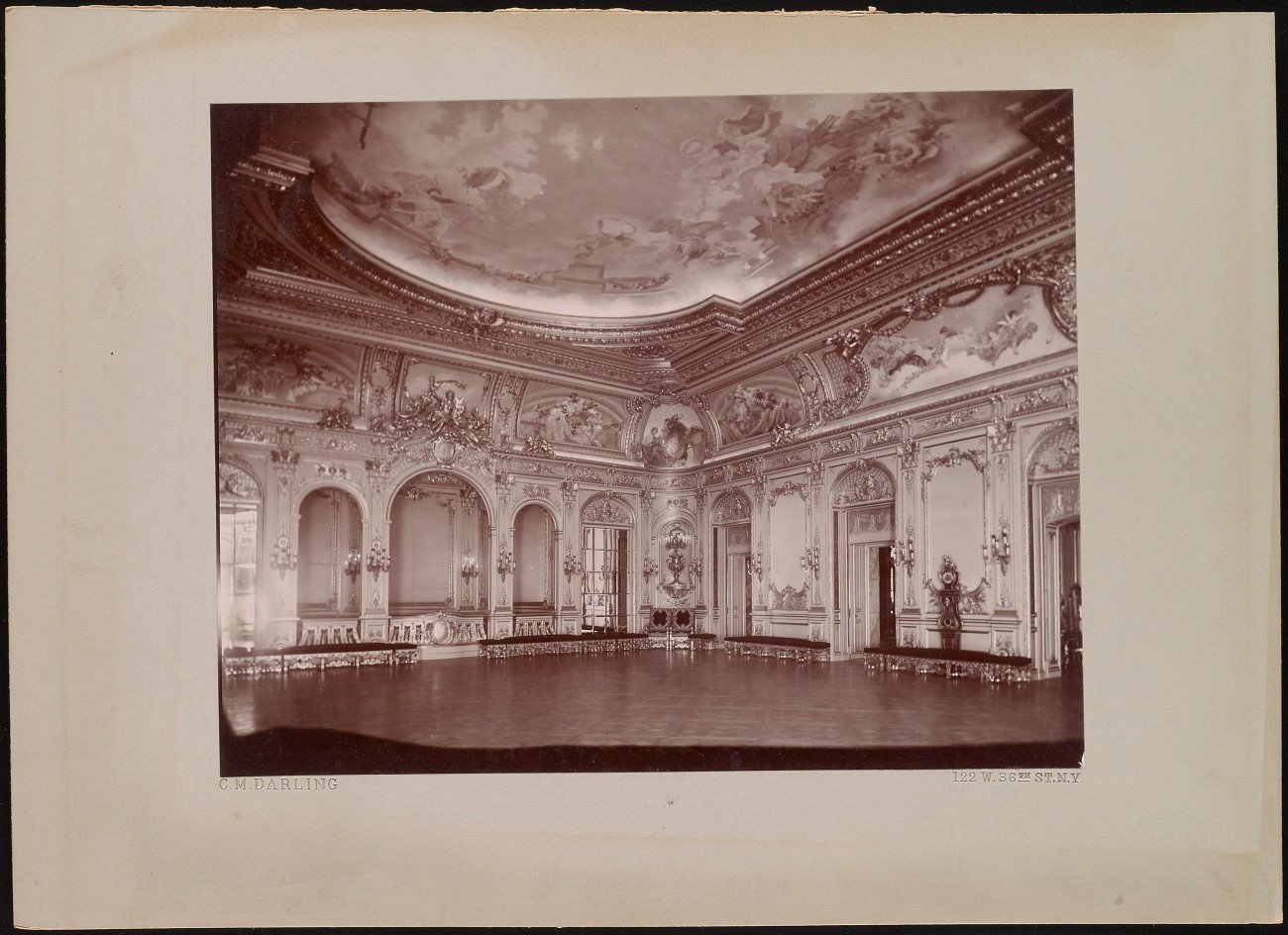
Seminar: (Re)constructing the Gilded Age: The Cornelius Vanderbilt II Ballroom, with Laura Jenkins
This SAHGB - IHR seminar will be a hybrid event, taking place online and in person at the Institute of Historical Research, Pollard N301 (3rd Floor, North Block of Senate House, Malet St, London WC1E 7HU).
ABSTRACT
Between 1892 and 1894, the Paris decorator Gilbert Cuel created one of the most iconic rooms of New York’s Gilded Age in the ballroom of the Cornelius Vanderbilt II residence at 1 West 57th Street. The interior was based on the Galerie Dorée of the Hôtel de Toulouse (Banque de France), decorated by Robert de Cotte and François-Antoine Vassé in 1713–17 and renovated by Charles-Auguste Questel and others in 1865–75. In 1926, less than forty years after its completion, the ballroom was disassembled, and its architectural fragments were dispersed. Reuniting some of these fragments for the first time, this talk will consider the Vanderbilt ballroom as a case study in reconstruction – from the perspective of both historicist decoration, or ‘period’ style, and historical research. Focusing on carved wood panels (boiseries), which have conventionally fallen between the scholarly categories of architecture and furniture, it will demonstrate the care taken to adapt 18th-century materials to 19th-century uses and highlight the difficulty of salvaging interior stories from the débris of architectural demolition.
Registration:
Please use the form below and watch for the pop-up message that will appear onscreen after you submit your details. You can copy the Zoom details that will be shown in this message, for those joining remotely.
BIO
Laura C. Jenkins is an art historian and PhD Candidate at The Courtauld Institute of Art. Her research focuses on French 18th- and 19th-century interiors in New York during the Gilded Age and on overlaps between architectural décors and social identities.
Image Captions
1. Ballroom, Cornelius Vanderbilt II residence, New York (Archives of American Art, Smithsonian Institution)
2. Galerie Dorée, Hôtel de Toulouse, Paris (Musée Carnavalet, Histoire de Paris)
Book A Place:
Calling SAHGB Members!
Renewals are now due for those who pay annual membership fees online, through ‘Support Us’.
We launched a new Fund for Publications in December in memory of the prolific Architectural Historian, Mark Girouard. We are fundraising and building a page to collect resources about his work, and to encourage gift-giving so that we can support and inspire with future grants.
Sincere thanks for your support through 2023. Please get in touch if you have any questions.

The SAHGB Annual Lecture. Architecture and Affect in the Middle Ages: Professor Paul Binski
Palma Cathedral ( used with permission of Paul Binski)
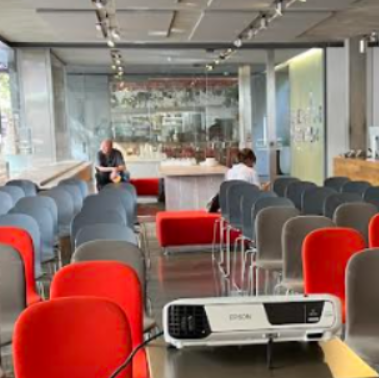
Hybrid Q&A Session concerning the future of the RIBA Collections and the House of Architecture Project
Bookings for this event are now closed. Many thanks to those who have registered. If you are joining the Webinar, please do not forget to use the blue link in your email in advance. This will send you all information you need.
We will be developing a transcript of the event and reporting some of the information in the next issue of our SAHGB Members’ Magazine.
Since the news of the ending of the partnership between the RIBA and V+A broke last year, the SAHGB’s Chair, Elizabeth Darling, and Bob Allies, member of the Council, have been liaising with RIBA to ensure that members’ interests are represented in the discussions about the Collections’ future. Our recent report can be read here.
We can announce that Oliver Urquhart-Irvine MVO, Executive Director of Architecture Programmes and Collections, RIBA, will join us for a hybrid Q+A session about the collections move on 29 February 2024. We will hold this with limited spaces in person, in London (Blackfriars area), and as a Zoom webinar with a Q+A function.
Bookings closed on 27 February, and we regret we cannot offer places on the door.
Members and external participants are welcome to participate but those wishing to attend will receive an email with registration instructions after indicating interest below, and to submit questions, in advance, for either the Zoom webinar or in-person places. You need to respond to the email you receive after giving brief initial information here on this page.
For any queries, if you have registered already, please use info@sahgb.org.uk. We may not be able to respond in the afternoon of 29 February.
Calling SAHGB Members!
For those who use the website to renew annually from Jan-December, membership subscriptions are now due.
We encourage you to book for our Annual Lecture, on 14 March, ‘Architecture and Affect in the Middle Ages’, given by Prof. Paul Binski.
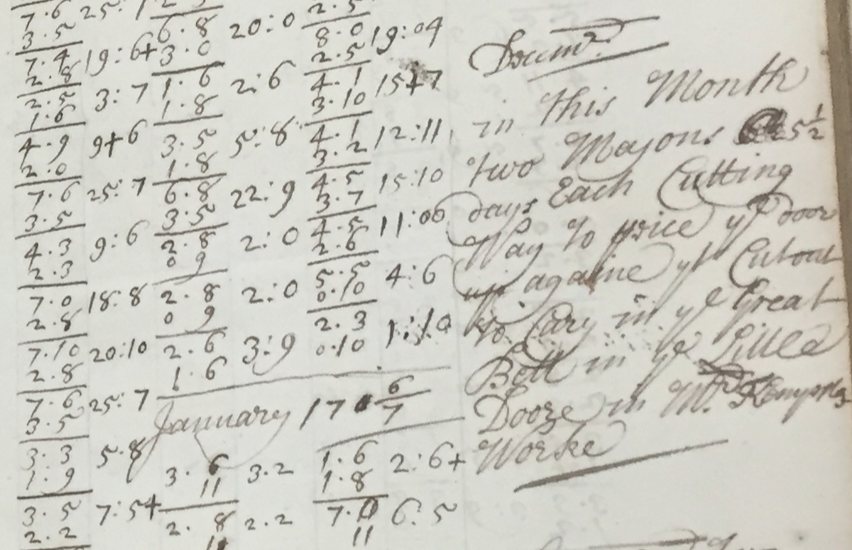
Seminar: The Construction Businesses of Early Modern London, with Judy Stephenson
This SAHGB - IHR seminar will be a hybrid event, taking place online and in person at the Institute of Historical Research, Pollard N301 (3rd Floor, North Block of Senate House, Malet St, London WC1E 7HU).
Pre-industrial construction enterprises are usually thought to be ‘artisanal’, and the medieval and early modern building trades have been idealised around ‘craft skills’ since the mid nineteenth century. Records of actual working contractors on major infrastructure projects and housing development contradict these embedded ideals, however. This paper describes the way in which early modern building contractors, a surprising number of them female, managed projects, competed for business, utilised and organised labour and supply chains, and ran profitable enterprises, which delivered the technologically enduring legacy of the late seventeenth century built environment.
Registration:
Please use the form below and watch for the pop-up message that will appear onscreen after you submit your details. You can copy the Zoom details that will be shown in this message, for those joining remotely.
BIO
Professor Judy Stephenson is an economic historian researching labour markets, institutions, firms, finance and industries in London between about 1600 and 1850. She is known for her work on London and English wages between 1650 and 1800 and has published on contracts and wages, and the boundaries of the firm before 1800. She is currently Professor of Economic History of the Built Environment at The Bartlett School of Sustainable Construction and Honorary Secretary of the Economic History Society, 2022-2025.
Book A Place:
Calling SAHGB Members!
Renewals are now due for those who pay annual membership fees online, through ‘Support Us’.
The Annual Lecture 2024 takes as its theme: Architecture and Affect in the Middle Ages. Register here for 14 March as we expect this to be a popular event.
Sincere thanks for your support through 2023. Please get in touch if you have any questions.
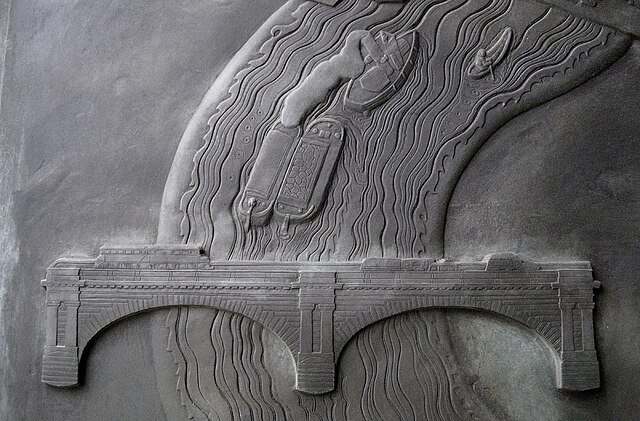
Seminar: Rethinking the Inbetween: Reflections on Interwar Historiography with Neal Shasore
This SAHGB - IHR seminar will be a hybrid event, taking place online and in person at the Institute of Historical Research, Pollard N301 (3rd Floor, North Block of Senate House, Malet St, London WC1E 7HU).
Detail of the left door of RIBA, showing the old Waterloo Bridge, James Woodford, 1934
Neal Shasore will talk about his recent publications, Designs on Democracy: Architecture and the Public in Interwar London (Oxford University Press), and a co-edited (with Jessica Kelly) volume of essays, Reconstruction: Architecture, Society and the Aftermath of the First World War. Shasore will use this work as a jumping off point to talk about more recent interests in Empire Timber and a forthcoming book on the history of 66 Portland Place, the headquarters of the RIBA. The seminar discussion will provide an opportunity to reflect on interwar architectural and built environment historiography more widely and where it sits within broader narratives and analytical frames within nineteenth and twentieth century British history, and its relevance to our contemporary moment.
Registration:
Please use the form below and watch for the pop-up message that will appear onscreen after you submit your details. You can copy the Zoom details that will be shown in this message, for those joining remotely.
BIO
Neal Shasore is Head of School and Chief Executive of the London School of Architecture, a bold experiment in architectural pedagogy. He was previously departmental lecturer in the History of Art at the University of Oxford, and held a Leverhulme Early Career Fellowship at Liverpool School of Architecture. He is a former Honorary Secretary of the Society of Architectural Historians of Great Britain and a trustee of the Architectural Heritage Fund. His publications Designs on Democracy: Architecture and the Public in Interwar London (Oxford University Press), and Reconstruction: Architecture, Society and the Aftermath of the First World War were shortlisted independently for the major awards of the SAHGB in 2023, with Reconstruction receiving a commendation from the Colvin Prize judging panel.
Book A Place:
Calling SAHGB Members!
Renewals are now due for those who pay annual membership fees online, through ‘Support Us’.
We launched a new Fund for Publications in December in memory of the prolific Architectural Historian, Mark Girouard. We are fundraising and building a page to collect resources about his work, and to encourage gift-giving so that we can support and inspire with future grants.
Sincere thanks for your support through 2023. Please get in touch if you have any questions.

Joining or Renewing membership for 2024
Sincere thanks to all for supporting the SAHGB
We wish all our members and visitors a great start to 2024!
January is the best time to take out a new membership, as annual memberships run for 12 months to the end of December. Members receive 2 magazines each year, in Spring and Autumn, and the printed copy of the Journal Architectural History in the final months of the year. We are a growing community and have seen new members joining at the rate of around 80 to 100 each year, as well as a thriving programme with many hybrid events open to all who love to learn more about this field. Welcome!
If you are a member already, we will be sending reminders through the monthly e-newsletters to encourage you to renew. You don’t need to wait if you would like to do this online: you can do so at any time through our menu section ‘Support Us’, using the current Renew form.
For those who pay by Direct Debit, please note that the SAHGB is changing its provider this year, and information can be found on your email and here.
As you may know, we would like 2024 to be a milestone year for our smaller grants programmes. We are fundraising, and our aim is to reach more Architectural Historians and Heritage Professionals to support research and writing. We are using JustGiving and our own website for donations large and small. We are a small charity and any help to reach our goals makes a great difference.
2024 Image thanks to Unsplash, @mokngr
Calling SAHGB Members!
Time to renew! Thank you for your support - we hope to see you at one of our events soon.

The SAHGB Book Awards Presentation Evening
TONIGHT!
Registrations now closed, but follow along for the winning publications on X
SAHGB members are invited to the annual presentation of the awards for writing and research, which will take place in East London on the 15th December 2023.
We will be holding this event at Toynbee Hall, London (near Aldgate East). The presentations will be made in the Lecture Hall at 7.30 pm, with a reception to finish the evening and celebrate with the winners and commended writers. Registrations have now closed and we look forward to meeting you later this week.
The results of the Alice Davis Hitchcock Medallion, the Colvin Prize, the Hawksmoor Essay medal, the Dissertation Prize, and the Heritage Research Prize will be announced. Full information about the process these awards follow, and what to expect if you would like to enter or nominate another person, can be found here.
The shortlists for the Alice Davis Hitchcock Medallion and the Colvin Prize are given below. Student research has been well-represented this year, with the Hawksmoor Prize and Dissertation Prize attracting many entries from a wide range of universities.
Thanks to all who have supported our Awards processes, from nomination to presentation. Congratulations to all who have been shortlisted.
Our Press Release will be published on our News Page once the ceremony is over.
The Alice Davis Hitchcock shortlist, 2023
G. A. Bremner, Building Greater Britain: Architecture, Imperialism, and the Edwardian Baroque Revival 1885 - 1920 (Paul Mellon Centre for Studies in British Art)
Gary A. Boyd, Architecture and the Face of Coal: Mining and Modern Britain (Lund Humphries)
Nicholas Bullock, Modernising Post-War France: Architecture and Urbanism during ‘Les Trente Glorieuses’ (Routledge)
Mark Crinson, Shock City: Image and Architecture in Industrial Manchester (Paul Mellon Centre for Studies in British Art)
Louise Purbrick, H Blocks: An Architecture of the Conflict in and about Northern Ireland (Bloomsbury Academic Publishing)
Neal Shasore, Designs on Democracy: Architecture and the Public in Interwar London (Oxford University Press)
Christopher Webster, Late Georgian Churches: Anglican Architecture, Patronage , and Church-Going in England, 1790 – 1840 (John Hudson Publishing)
The 2023 Colvin Prize shortlist
John Boughton, A History of Council Housing in 100 Estates (RIBA Publishing)
Jiat-Hwee Chang, Justin Zhuang, and Darren Soh (photographer), Everyday Modernism: Architecture and Society in Singapore (National University of Singapore Press)
Jane Grenville, Yorkshire: North Riding (Pevsner Buildings of England series) (Yale University Press)
Editors: Neal Shasore and Jessica Kelly, Reconstruction: Architecture, Society and the Aftermath of the First World War (Bloomsbury Publishing)
Editors: Jianfei Zhu, Chen Wei, Li Hua, Routledge Handbook of Chinese Architecture: Social Production of Buildings and Spaces in History (Routledge)
Calling SAHGB Members!
We will be sending subscription renewal alerts in December, but you can use the ‘Renew Now’ form to carry on with your membership to the end of 2024 if desired.

Hawksmoor and the English Gothic Church. A seminar by Dr. Elizabeth Deans
This SAHGB - IHR seminar will be a hybrid event, taking place online and in person at the Institute of Historical Research, Pollard N301 (3rd Floor, North Block of Senate House, Malet St, London WC1E 7HU).
Please note that places on Zoom are still available to book below, but the in-person option at Senate House is now full.
This seminar will address a significant question of architectural style in early eighteenth-century Britain: What was Nicholas Hawksmoor’s relationship with the Gothic church? This seminar will illuminate a new source of Hawksmoor’s experience surveying, repairing, and rebuilding England’s gothic churches, including Beverley, St Albans, and Westminster Abbey. It will uncover Hawksmoor’s little-known involvement in surveying England’s great religious compounds – the largest buildings he likely ever saw – and preparing extensive historical surveys, prints, and designs for them. It will argue that Hawksmoor’s approach to interpreting and inventing architecture within the style of the ‘Gothick manner’ was fundamentally (and intellectually) linked to his experience training in Sir Christopher Wren’s Office.
Registration:
Please use the form below and watch for the pop-up message that will appear onscreen after you submit your details. The Zoom link will be shown in this message for those joining remotely.
BIO
Dr Elizabeth Deans is an architectural historian of seventeenth-century Europe and specialises in architecture of the post-Restoration period in Britain. She is currently writing a book, Working in Wren’s Office: A Material History of Architectural Training in Britain, 1660-1730. Currently, Elizabeth is Assistant Director of the Ax:son Johnson Centre for the Study of Classical Architecture at the University of Cambridge and lectures in the Faculty of History of Art.
Book A Place (remote attendance on Zoom):
Calling SAHGB Members!
You are welcome to come to our Awards presentation, and the launch of a new fund in memory of Mark Girouard, in London on the evening of 15th December. Please register by 11 December through the ‘What’s On’ post and we will be in touch to give full details of the event.
We will be sending subscription renewal alerts in December, but you can use the ‘Renew Now’ form to carry on with your membership to the end of 2024 if desired.
Sincere thanks for your support through 2023. Please get in touch if you have any questions.

The SAHGB Annual General Meeting
16 November 2023: Hybrid AGM
The Annual General Meeting of the SAHGB will be held on Thursday 16th November, in the Atrium of Allies and Morrison, 89 Southwark Street, London, SE1 0HX, with a remote attendance option on Zoom, if preferred. Please note that we have now closed the period for registrations and proxy nominations.
We will follow the AGM with drinks at the venue.
Members and external participants are welcome to participate but those wishing to attend will need to register by 14 November, for both Zoom or in-person places.
The papers can be found on the members’ pages at this link
If places at the venue are booked to capacity, participation will be offered remotely through Zoom.
If you wish to appoint a proxy, please contact the Administrator before 14 November, on info@sahgb.org.uk
Calling SAHGB Members!
We will publish details in our newsletter, and online, of our 2023 AGM and linked Q+A Event on the future of the RIBA Collections in November. Please register for these if you wish to attend. We will be sending subscription renewal alerts in December, but you can use the ‘Renew Now’ form to carry on with your membership to the end of 2024 if desired.

Seminar: The ‘romanitas’ of Wren’s Sheldonian Theatre: An Alternative Reading, with Janet DeLaine, FSA
This SAHGB - IHR seminar will be a hybrid event, taking place online and in person at the Institute of Historical Research, Pollard N301 (3rd Floor, North Block of Senate House, Malet St, London WC1E 7HU).
It has long been recognised that Wren took inspiration for his Sheldonian from the theatres of ancient Rome, but at the same time the details of this relationship have been much debated, so that the most recent accounts have tended to downplay the connection. This seminar attempts to redress the balance and demonstrate that Wren was even more influenced by his understanding of the Roman world – and not just Roman theatres - than has been previously thought. It reassesses some key questions: why would Wren have chosen the ancient Roman theatre as a model or inspiration for his design? What did he understand about Roman theatres and what were his sources? How did he use them and what else did he use? The key to this reading is to recognise the importance of Wren as a Latin scholar and admirer of the Roman emperor Augustus, to many of Wren’s circle a role model for the newly restored monarch Charles II.
Registration:
Please use the form below and watch for the pop-up message that will appear onscreen after you submit your details. The Zoom link will be shown in this message for those joining remotely.
Link Image: Sheldonian Theatre, Oxford, copyright Wikimedia Commons
BIO
Janet DeLaine, FSA, was Associate Professor in Roman Archaeology at the University of Oxford, and is now Emeritus Fellow at Wolfson College. Her research focuses on the built environment of the Roman world, and she has just published a volume on Roman architecture for the OUP History of Art series.
Book A Place:
Calling SAHGB Members!
We will publish details in our newsletter, and online, of our 2023 AGM and (rescheduled) Q+A Event on the future of the RIBA Collections. Please register on this page by 14 November. We will be sending subscription renewal alerts in December, but you can use the ‘Renew Now’ form to carry on with your membership to the end of 2024 if desired.
Sincere thanks for your support through 2023. Please get in touch if you have any questions.
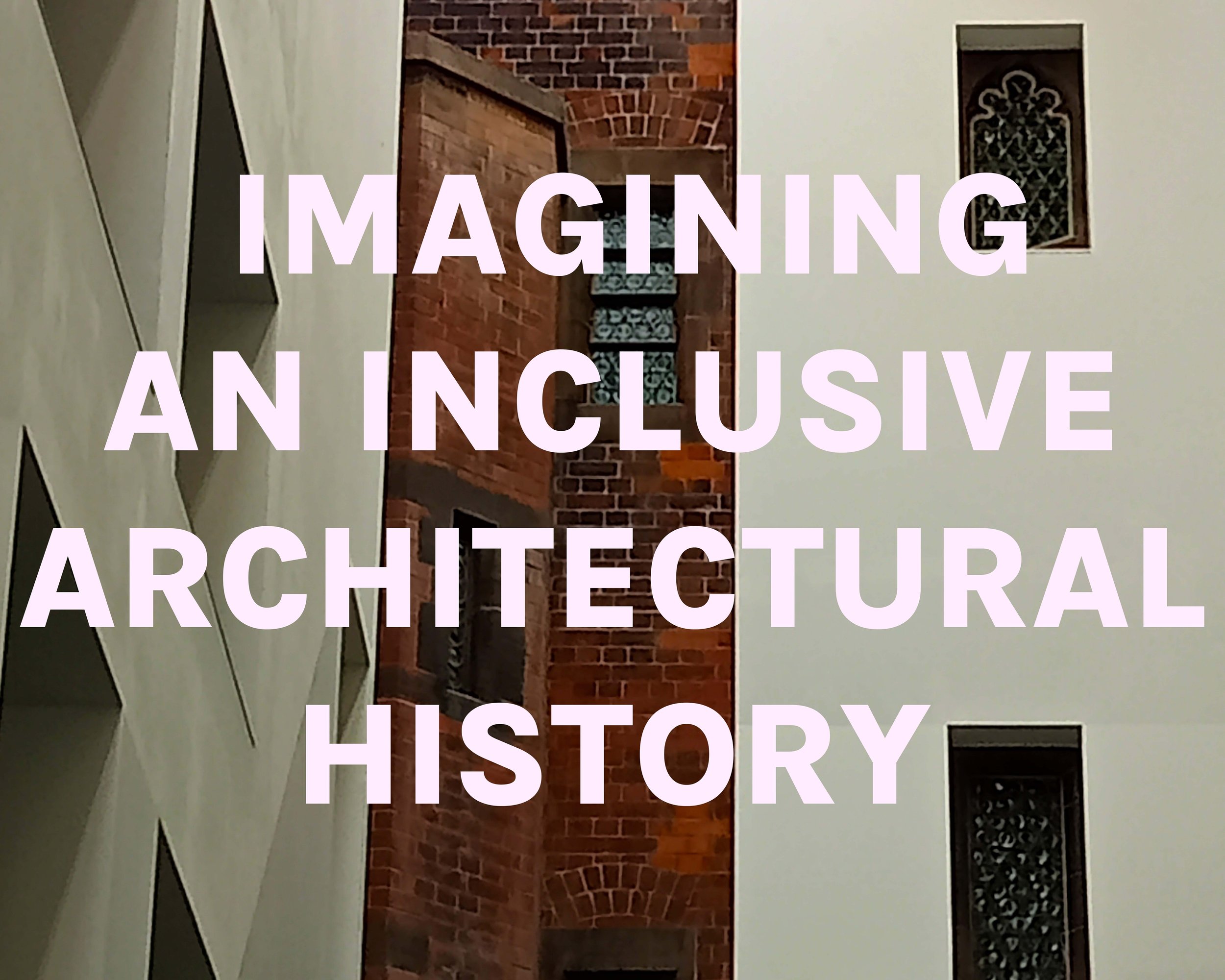
Imagining an Inclusive Architectural History: A Roundtable Celebrating the SAHGB’s ED&I Networks
This event will be a hybrid event, taking place online and in person at the London School of Architecture (4 Beechwood Road, London, E8 3DY).
Bookings are now closed. If you booked your place, please look out for your meeting link if joining remotely and guidance for those registered if you are joining in person.
Since their launch in 2019 with the support of then-Honorary Secretary Dr Neal Shasore (London School of Architecture), the Society’s ED&I networks and their members have come together to work towards a bigger, more diverse architectural history which reflects and builds upon the knowledge and experiences of persons from a wide variety of backgrounds. These networks were established based on the protected characteristics outlined in the Equality Act 2010, and they reflect the Society’s commitment to diversifying and making the discipline of architectural history more inclusive.
This event brings together emerging scholars and professionals from diverse backgrounds in order to foster conversations about the future of architectural history and the study of the built environment. We recognise that while progress has been made in some areas, there is still much work to be done to eradicate barriers to inclusivity and to truly diversify the discipline. With the worrying rise in racially motivated hate crime and media transphobia in recent years, it is important that we come together to create safe and inclusive spaces for architectural historians from a wide range of backgrounds to share their experiences and research in solidarity.
Each speaker will give a short presentation on a current piece of work or research which focuses on issues related to equality, diversity and inclusion within architectural history or the built environment. After the presentations, the floor will be open for questions from the audience. Dr Neal Shasore (Head of the London School of Architecture and former SAHGB Honorary Secretary) will give some opening remarks, and Elizabeth Darling (current SAHGB Chair) and Doreen Bernath (incoming SAHGB Honorary Secretary) will make closing remarks. Christiane Buxton, our current LGBTQIA+ network convenor, will be chairing the panel.
The roundtable will be followed by a wine reception, which gives attendees an opportunity to get to know the ED&I networks and their work and get involved.
Registration:
Please use the form below and watch for the pop-up message that will appear onscreen after you submit your details. The Zoom link will be shown in this message for those joining remotely.
SPEAKERS
Eve Pennington is a current PhD student at the University of Manchester. Eve's thesis is titled Mothers of Modernity: Women's Experiences of New Towns in North West England, 1961-1989.
Dr Ewan Harrison is an historian of post-war architecture in Britain and its Empire. He is especially interested in architectures for business, and the business of architecture. He is a lecturer at the University of Manchester and a Fellow at the University of Liverpool Architectural Heritage and Urbanism in West Africa Research Centre. He was a founding member of the Society's ED&I networks and one of the LGBTQIA+ Network convenors from 2019-2023.
Jordan Whitewood-Neal is an architectural researcher, designer and artist whose work addresses disability, domesticity, pedagogy, and cultural infrastructure. He is currently co-leading a Design Think Tank at the London School of Architecture and he is co-founder of the disability-led research collective Dis-Collective.
James Zatka-Haas is a writer, artist, and co-founder of the disability-led research collective Dis-Collective alongside Jordan Whitewood-Neal. Having been born with Cerebral Palsy, James's work explores what it means to experience the world from an altered perspective, and understanding how that perspective shapes the way we see, feel and love.
Sarah Akigbogun, founder of Studio Aki, is an Architect and Filmmaker. Studio Aki is a transdisciplinary architecture and research practice committed to creating socially-engaged projects. The studio straddles the boundaries of architecture, art and design, drawing on influences from engineering, film and theatre. Akigbogun is a graduate of the Architectural Association and has trained as a structural engineer and graphic designer.
Bookings are now closed.
Calling SAHGB Members!
We will publish details in our newsletter, and online, of our 2023 AGM and linked Q+A Event on the future of the RIBA Collections in November. Please register on this page by 14 November. We will be sending subscription renewal alerts in December, but you can use the ‘Renew Now’ form to carry on with your membership to the end of 2024 if desired.
Sincere thanks for your support through 2023. Please get in touch if you have any questions.
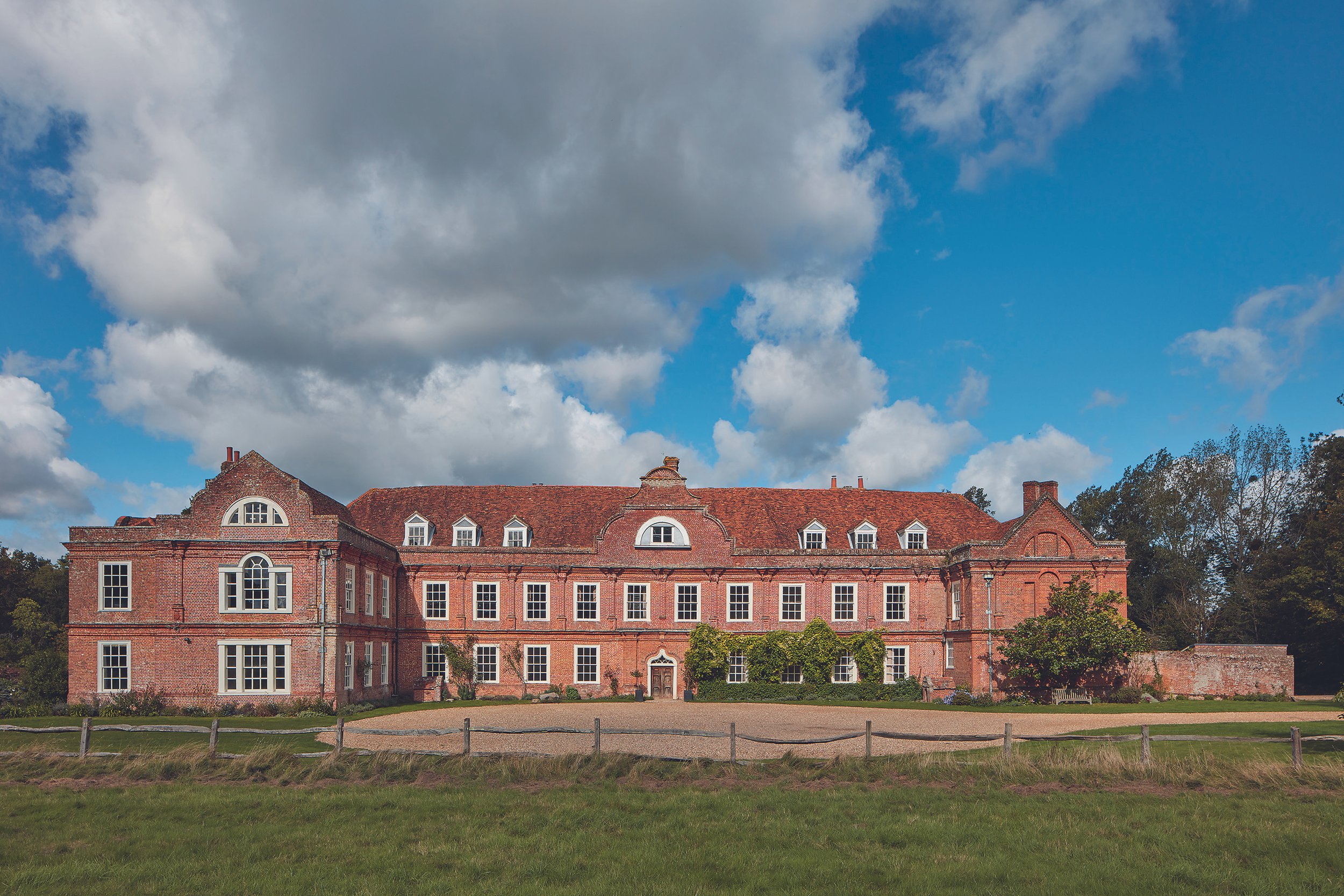
A Study Day to West Horsley Place, Surrey
Please note that this event is now fully booked (6 October 2023)
You will receive information about your place shortly.
This fascinating study day is hosted at West Horsley Place, Surrey, courtesy of the West Horsley Place Trust.
This relatively unknown gem is not usually open to the public. The house is multi-phase with significant remains of a large medieval timber-framed building, concealed by a brick front of the mid-seventeenth century characteristic of Surrey’s style. It has been altered on several occasions but its architectural history is still relatively poorly-understood. Attenders will have an opportunity to see the whole of the house, led by Charles O’Brien, author of the recently-revised ‘Pevsner’ for Surrey and SAHGB Council member; Martin Higgins, chair of Surrey’s Domestic Buildings Research Group; and with contributions by Claire Gapper.
A sandwich lunch along with tea/coffee and cakes are included.
Accessibility:
The visit to West Horsley Place will include several sets of stairs.
Weather permitting, attendees able to access the roof areas safely may have the option to explore this part of the house at their own risk.
Bookings now closed
Calling SAHGB Members!
We will publish details in our newsletter, and online, of our 2023 AGM and linked Q+A Event on the future of the RIBA Collections in November. Please register for these if you wish to attend. We will be sending subscription renewal alerts in December, but you can use the ‘Renew Now’ form to carry on with your membership to the end of 2024 if desired.
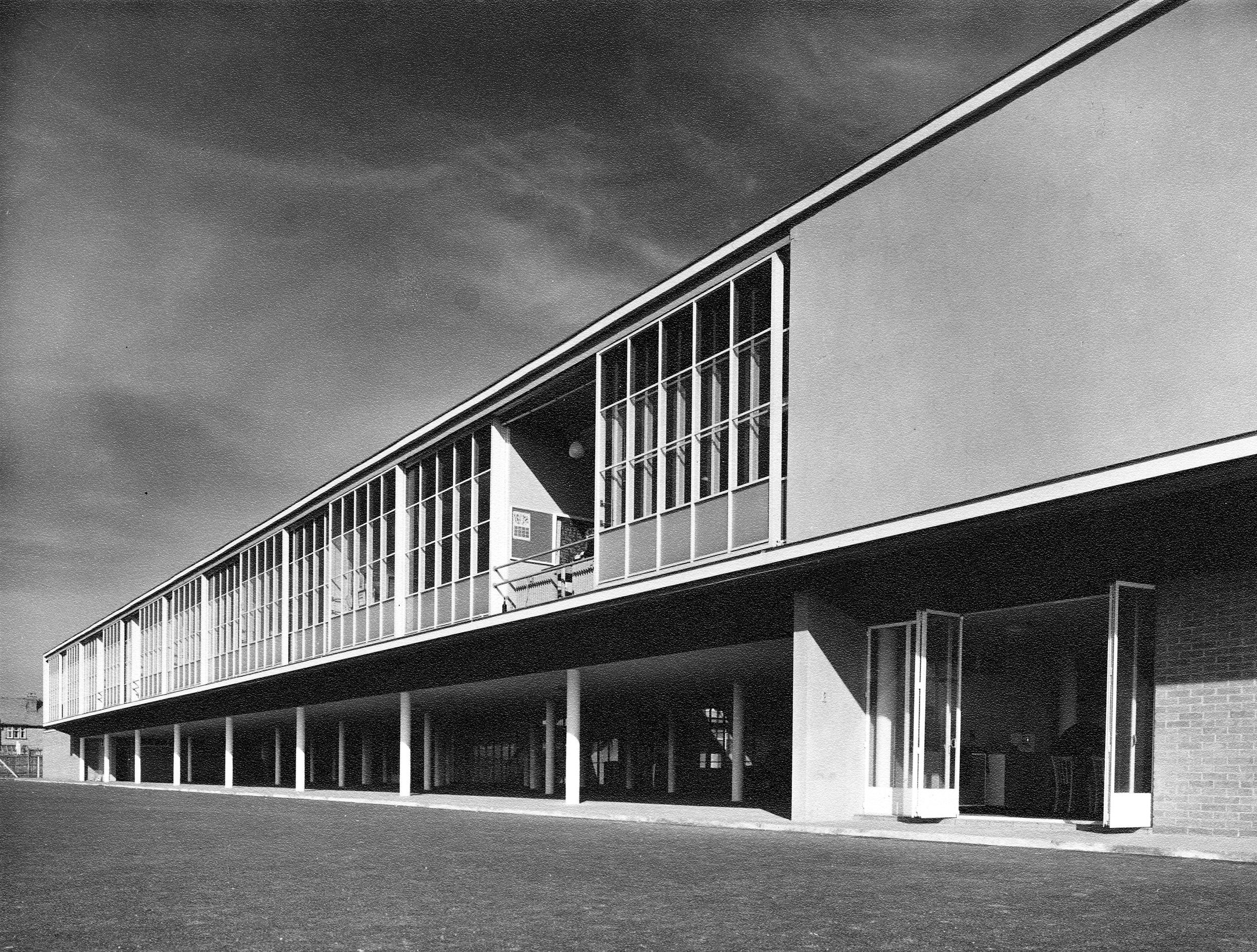
Seminar: The Noisy Landscape - Modernism at Heathrow, with Professor Mark Crinson
This SAHGB - IHR seminar will be a hybrid event, taking place online and in person at the Institute of Historical Research, Pollard N301 (3rd Floor, North Block of Senate House, Malet St, London WC1E 7HU).
This is the story of a prize-winning modernist school and its early demise, and entangled with this is a larger story about the landscape in and around Heathrow airport, about the local versus the global, and about noise and its tolerance (perhaps also about ‘affordance’). The school in question – Woodfield County Secondary Modern – was one of the first secondary modern schools built under the dispensation of the 1944 Education Act, and its architect (Denis Clarke Hall) attempted to combine some of the ideals of continental modernist schools with forms suitable to the idea of a vocational technical education. The seminar offers an analysis of the particular conditions and ideals that shaped the school and how they immediately came into conflict with the school’s environmental conditions, particularly the noise pollution of its site; such was the conflict, in fact, that within fifteen years the school was abandoned and demolished. The seminar asks, how were ordinary local needs like housing and schooling reconciled - or not - with the imperatives of a facility like an international airport with its apparently superordinate claims to make or maintain London’s global status (in the face, for instance, of imperial decline)? How, more specifically, was aircraft noise to be mitigated, how was it even to be measured in its effects? How far was noise ‘annoyance’ a cultural or learnt matter, and what might this mean not only for the skins of buildings but to the forms of life that they contained?
Registration:
Please use the form below and watch for the pop-up message that will appear onscreen after you submit your details. The Zoom link will be shown in this message for those joining remotely. The date of this event is 12th October.
Image:
Woodfield County Secondary Modern School, Cranford (Architect – Denis Clarke Hall, 1954). Photographer – Reginald Hugo de Burgh Galwey.
Courtesy RIBA Drawings and Photographic Collection.
BIO
Mark Crinson is Emeritus Professor of Architectural History at Birkbeck, University of London. He was Vice-President and President of the European Architectural History Network (2016-2020), and he is a Fellow of the British Academy. He is the keynote speaker for the SAHGB’s 2023 Study Tour to Manchester, and recently contributed an episode of the 2023 Architectural History podcast mini-series.
His book Shock City: Image and Architecture in Industrial Manchester (2022) has been shortlisted for the SAHGB’s Alice Davis Hitchcock medallion at the time of this event; an interview can be read on our Features page.
His books include Rebuilding Babel: Modern Architecture and Internationalism (2017), The Architecture of Art History – A Historiography (2019, co-authored with Richard J. Williams), and Modern Architecture and the End of Empire (2003, re-issued 2019). He is currently researching a Leverhulme-funded book, Heathrow’s Genius Loci.
Book A Place:
Calling SAHGB Members!
We have a small-group Autumn Study Day in Surrey bookable through the What’s On calendar, and will publish details in our newsletter, and online, of our 2023 AGM and linked Q+A Event in November. Please register for these if you wish to attend.
Sincere thanks for your support through 2023. Please get in touch if you have any questions.

The SAHGB Study Tour 2023: Manchester - bookings close 8 September
Bookings are closing soon for the 2023 Study Tour, taking place this year in Manchester. We aim to offer something for everyone in a varied programme, and will visit some fascinating locations, conservation areas, and heritage regeneration projects.
For the full information and booking form use this link
Image: The former Refuge Assurance Building, Manchester, now a hotel © @chriscurry92 via Unsplash

Women in Social Housing and Architecture: St. Pancras. Joint event by the SAHGB Diversity Networks and Somers Town History Space
An all-female panel discusses women in social housing with a St. Pancras focus as part of the London Open City events for 2023.
The event takes place on 16th September, in the Basil Jellicoe Hall, London, and participants can join for a free guided walk before the discussion, taking in estates that are not normally open to the public.
Please get tickets in advance via Eventbrite where the full event description and registration guidance for the walk and discussion can be found.
London Open City offers a varied programme of events and tours.
Link image from calendar: via Unsplash, @constantinevdokimov
Calling SAHGB Members!
We have a small-group Autumn Study Day in Surrey bookable through the What’s On calendar, and will publish details in our newsletter, and online, of our 2023 AGM and linked Q+A Event in November. Please register for these if you wish to attend.
Sincere thanks for your support through 2023. Please get in touch if you have any questions.

Shortlists published for the SAHGB’s Alice Davis Hitchcock Award and Colvin Prize
We are delighted to announce the shortlists, decided after consideration of a generous number of nominations, for the 2023 ADH and Colvin Awards!
Our selection will be announced on the News posts at 9am on 27 July.
If you are considering entering the ‘Hawksmoor’ essay prize, the Heritage Research prize, or the Dissertation prize, entries are still being accepted: please see the Awards pages for details and how to send in an entry
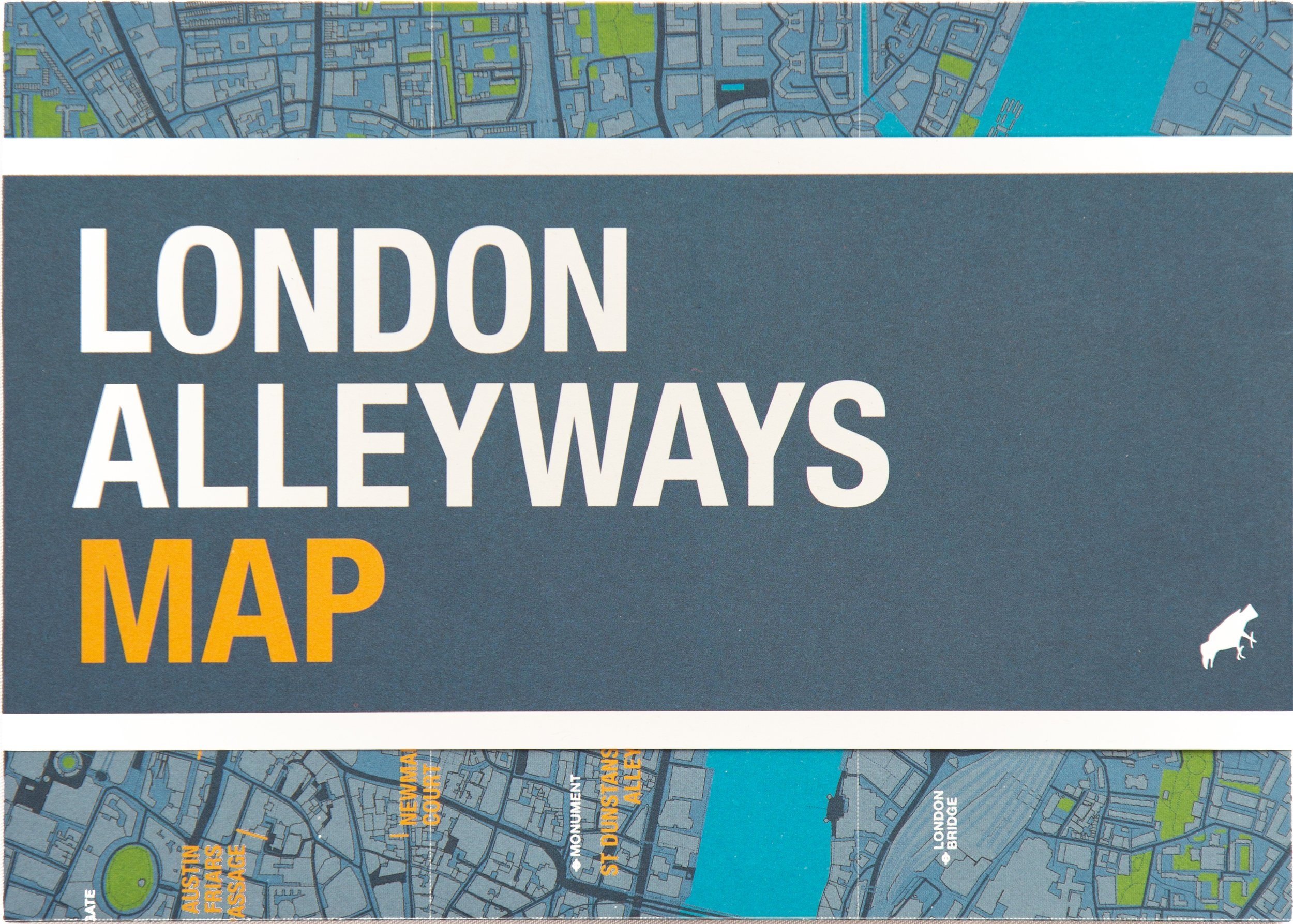
Rewiring the City: A Walk Through London’s Alleyways
We are delighted to announce this new SAHGB-IHR event.
This will be a hybrid event, taking place online and in person at the Institute of Historical Research, Pollard N301 (3rd Floor, North Block of Senate House, Malet St, London WC1E 7HU).
Cover Image - © Nigel Green, Blue Crow Media
London's alleyways have a habit of leading to unexpected places. They act as the city’s library: echoing the routes of trade, lost rivers, burial roads, disputed boundaries, tracks of animals and people. Alleyways inject a dose of disjunction into the cityscape, triggering unfamiliar ways of moving from one familiar space to another. They have a tendency to momentarily rewire the city and throw drab views of a place into a new light, unexpectedly montaging different areas and streets together to make new experiences. Common waypoints only allow a surface interaction with a place, while hidden passages allow us to enter the inner mechanics of its perceptual constructions.
Image: St John's Path © Matthew Turner
Image: Strand Lane © Matthew Turner
Image: French Ordinary Court © Matthew Turner
BIO
Matthew Turner is a senior lecturer at Chelsea College of Arts. He has written about alleyways for Icon magazine, the Architectural Review and has discussed them with Robert Elms on BBC Radio London. In 2022 he published the London Alleyways Map with Blue Crow Media. and the West: An Architectural Dialogue (2019) and the prize-winning Craig Ellwood (2002).
Book a place
Calling SAHGB Members!
Please explore our Summer events on our website: Study Visits to Greenwich and a Curator’s tour at the Soane Museum, and celebrations of Wren and Adam for 2023. Sincere thanks for your support. Please get in touch if you have any questions.

Wren and Greenwich: An SAHGB Study Day for the Wren300 Celebrations
We welcome registrations for a summer Study Day on foot in Greenwich, on 28 June, to celebrate the area’s maritime history and Sir Christopher Wren’s rich legacy.
This year marks the 450th anniversary of Inigo Jones’ birth, and 300th anniversary of Christopher Wren’s death. As part of the Wren300 commemorations, you’re invited to explore Maritime Greenwich, a World Heritage Site described by UNESCO as the ‘finest and most dramatically sited architectural and landscape ensemble in the British Isles’. We will be joined by eminent scholars, curators, and conservationists who will illuminate this key site in the evolution of classical architecture in England.
The day will be led by specialist in Wren’s architectural legacy, Dr David McKinstry, Lecturer in the History of Architecture and Design, Imperial College London, Conservation Officer London Borough of Camden, and former Secretary of the Georgian Group. David will introduce buildings across the site, by Webb, Wren, Hawksmoor, and Stuart.
In this busy year for him, we are lucky to have the expertise of drawings expert and Jones authority Dr Gordon Higgott, who will introduce England’s first fully realised classical building, Queen’s House (1616-35) including its Great Hall and the Tulip Staircase. Dr Allison Goudie, Curator of Art Pre-1800, Royal Museums Greenwich, will discuss her current exhibition The Van de Veldes: Greenwich, Art and the Sea.
Wren’s Hospital for Seamen design comprises matching pairs of courts separated by a grand visto the exact width of the Queen’s House. Our understanding of the hospital will be enhanced there through detailed notes and general discussion addressing the complex design and building sequence. Inside at the dining hall, William Palin, CEO of Bart’s Heritage Trust will introduce James Thornhill’s extraordinary baroque Painted Hall (1707- 26) recently the subject of an award-winning conservation project, led by Palin.
The Grade II listed Trafalgar Tavern (des. Joseph Kay, 1837) on the bank of the River Thames, is our spot for lunch. The entire pub is adorned with artefacts and paintings telling the story of Britain’s naval history, and Curator Emeritus of the National Maritime Museum, and maritime historian Pieter Van der Merwe, MBE, DL, will introduce some key pieces of the drawings collection.
In the afternoon we’ll experience James Athenian Stuart’s neo-classical remodelling of the Royal Hospital Chapel before walking to the Church of St. Alfege. The first church to be built by the Commission for Building Fifty New Churches (1712-14) to designs by Hawksmoor, St Alfege will be introduced by their expert guides. Finally, we will enjoy the 19th century Greenwich streets, and those who wish are welcome to come for a drink at the Gypsy Moth Tavern before returning home.
Please register by 23rd June, 12pm, as catering must be confirmed in advance
Accessibility
The tour will include several areas approached by stairs. The Queen’s House and Painted Hall have disabled access and there are disabled accessible lavatories across the site. However, there are several flights of external steps which are not wheelchair accessible.
Walking distances are moderate but periods of standing will be numerous. Please also note that this is a walking tour which includes periods outdoors, whatever the weather conditions. Clothing appropriate to this is strongly recommended. Those with specific access needs are strongly advised to inform the Society in advance so that arrangements can be planned, via info@sahgb.org.uk
The Painted Hall: All photos copyright Dr. Stephen Gage
Registration Form
Please process payment only once and look out for an email that confirms your booking. There is no instant pop-up window that follows the payment page.
Registration will be closed at 12pm on 23rd June, to allow confirmation of the catering for the event.

Zoom Room introduction to the Heritage Research Award with the SAHGB and IHBC: online event hosted by the IHBC Marketplace: LIVE
We invite you to register for an online session and Q&A to celebrate the Heritage Research Prize, and join in the virtual IHBC Marketplace: LIVE evening on Wednesday 21 June
Join Panel Chair John Cattell (Head of Research at Historic England, SAHGB Trustee) and IHBC Panel Judge Matthew Saunders for an online drop-in session to find out about one of our newest awards, the Heritage Research Prize (accepting entries online at the SAHGB’s Awards Pages until 1st September).
There will be a choice of 2 sessions to attend, kindly hosted by the IHBC as part of its Annual School 2023, taking place in Swansea. Entry to the Heritage Research Prize session will also allow you to attend other presentations as part of the Marketplace: LIVE Programme and an optional ‘Happy Hour’ with the IHBC and other participants from 6pm . This event is virtual and open to all but you must register in advance (details below).
Those registering will have opportunities to ask questions and also to visit other Zoom drop-in rooms for networking, heritage careers information, and opportunities to view architects’ and conservationists’ latest areas of interest and concern. Explore https://marketplace.ihbc.org.uk/ for a flavour of the presentations in store.
The full programme and joining details will be sent to you by email nearer the time. Access offered for this programme is only via Zoom, not for in-person or hybrid Annual School sessions
To participate, please register via the link below (now deactivated) and await a joining link at 4:30 on the 21st
Calling SAHGB Members!
Please explore our Summer events on our website: Study Visits to Greenwich and a Curator’s tour at the Soane Museum, and celebrations of Wren and Adam for 2023. Sincere thanks for your support. Please get in touch if you have any questions.

Exhibition: ‘Architects’ Houses’. Small Group Curator’s Tour for SAHGB members at the Soane Museum
ARCHITECTS’ HOUSES: Curator’s Tour with a visit to the Drawings Collection.
Sir John Soane’s Museum, 13 Lincoln’s Inn Fields, London, WC2A 3BP
The event takes place today; bookings are now closed
This exhibition, which runs at Sir John Soane’s Museum from 7th June to 3rd September 2023 celebrates five London houses, all of which, like the Soane, have been designed by the architects who lived – and in some cases still live – in them.
For SAHGB members, Dr Erin McKellar, the exhibition’s curator, has kindly agreed to lead a tour of the display, preceded by a private session in the museum’s library to explore material that relates to John and Eliza Soane’s houses, 13 Lincoln’s Inn Fields and Pitzhanger Manor.
The afternoon finishes with tea and light refreshments.
Limited places are available for this one-off event.
SAHGB Members: £24
SAHGB Student/ Young members: £18
Further Information about the exhibition here
Post image: The Red House (© Gareth Gardner)

RESCHEDULED (1 June). Visions of a Future London: George Dance the Younger’s Proposals for the Port of London, 1796-1803
This seminar has been rescheduled from 16 February. Previous and new registrations welcome.
This will be a hybrid event, taking place online and in person at the Institute of Historical Research, Institute of Historical Research, Pollard N301 (3rd Floor, North Block of Senate House, Malet St, London WC1E 7HU).
Proposals for building, or rebuilding, bridges across the Thames can spark vociferous debate, as the recent furore over the ill-fated Garden Bridge has demonstrated. But such discussions can also be revealing of contemporary expectations surrounding London’s future. Between 1796 and 1800, the architect George Dance the Younger (1741-1825) produced a series of radical proposals for rebuilding the Port of London and London Bridge. These proposals, which were submitted to Parliament, called for the construction of two parallel bridges and monumental warehouses on either side of the river. Unsurprisingly, they were quickly dismissed as too expensive and Parliament opted instead for the construction of new docks on the Isle of Dogs.
However, despite its failure, Dance’s vision for the Port of London went on to enjoy considerable public exposure thanks to the printmaker William Daniell (1769-1837), who produced two popular aquatint perspectives of the scheme, and the theatre scenery painter Robert Andrews (fl.1789-1819), who used Daniell’s prints as the inspiration for a huge theatrical ‘panorama’ displayed at Sadler’s Wells Theatre between 1801 and 1803.
This talk will consider Dance’s scheme and its visual afterlives not simply as relics of a failed planning exercise, but as examples of a ‘paper architecture’ that helped to configure expectations about London’s future form. It will show how images of Dance’s scheme acquired a purpose and agency that outlasted the circumstances of their creation and, in doing so, demonstrate the versatility of urban planning imagery at the turn of the nineteenth century
Perspective Sketch Illustrating a Design on the Improvement of the Port of London, c.1800 (Yale Center for British Art)
BIO
Harry Adams is a PhD candidate at the Courtauld Institute of Art, London, supervised by Professor Christine Stevenson. His research explores George Dance the Younger’s urban planning proposals for the Corporation of London between 1768 and 1815.
Book A Place:
Calling SAHGB Members!
Annual membership renewals are now due, with full guidance on the Support Us page.
Sincere thanks for your support through 2022. Please get in touch if you have any questions.
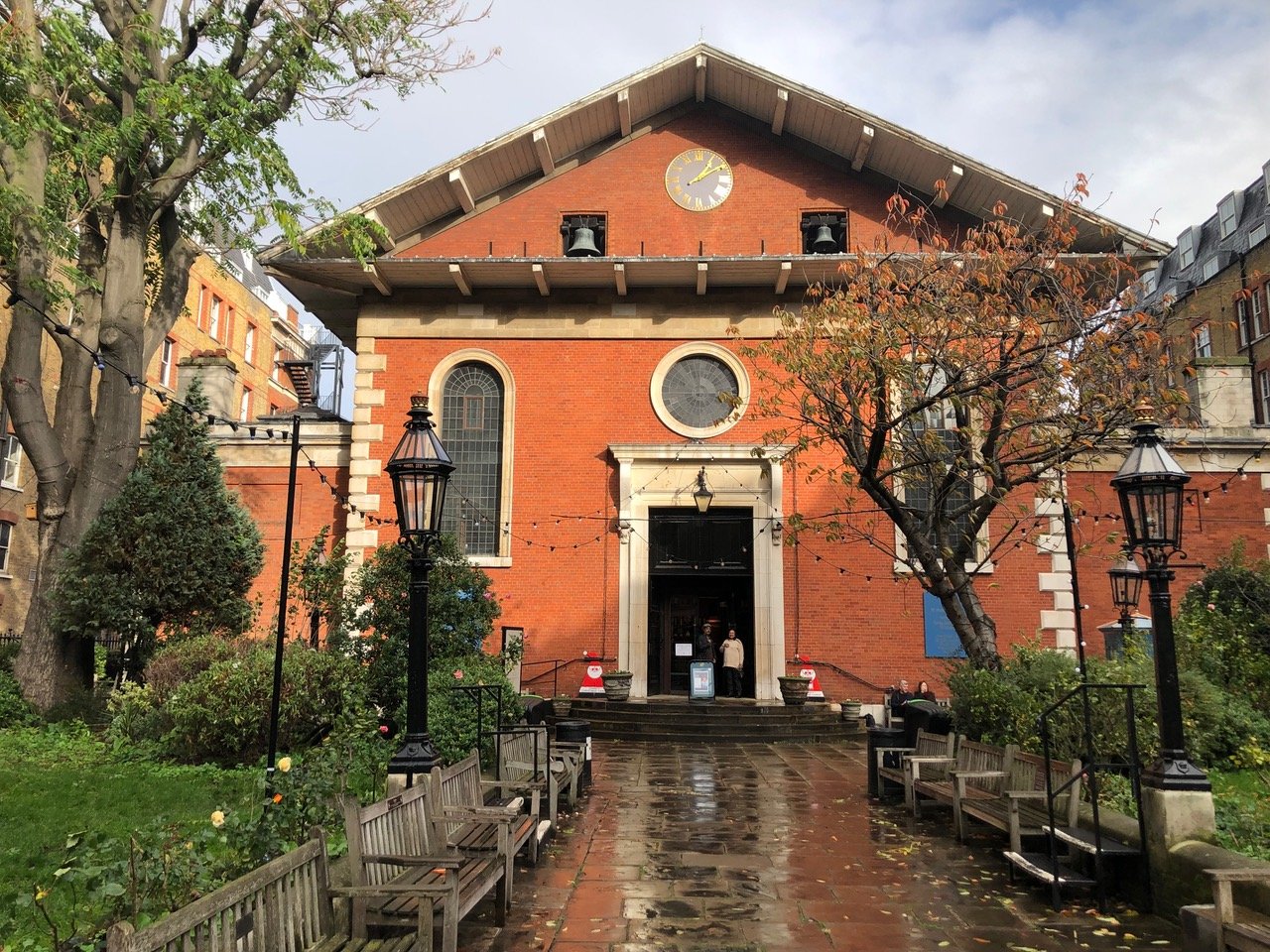
‘Inigo Jones Makes a List’. Professor Christy Anderson gives an online lecture for Jones’ 450th Anniversary.
The SAHGB welcomes Professor Christy Anderson, a John Simon Guggenheim Fellow in the field of Architecture, Planning and Design at the University of Toronto, to give a lecture in celebration of architect and artist Inigo Jones.
This event will take place online through Zoom. A link will be circulated to all who registered the morning of the event. Thank you for understanding.
Cover Image: St Paul’s Church, Covent Garden ©Christy Anderson
One of the many talents of the designer and architect Inigo Jones is that he was a great reader. The surviving books from his collection are filled with the notes and markings of his response to the images and text. Throughout his books, and sometimes on the back of drawings, Jones made lists of the things that he read, buildings he studied, and sometimes just a list of things that he needed to remember from home. This talk looks at Jones’s list making and how it was a method of study that shaped his architecture and design practice, and even his own public persona. Within Jones’s notes are records of his careful study of buildings both in England and in Europe and indicate how much he relied on his study of things close to home as well as to the more exotic art and architecture of Italy, France, and Denmark. Finally, the talk will suggest that list-making as a practice was closely tied to Jones’s study of classical architecture, that was a list-based system of its own.
Queen’s House, Greenwich ©Christy Anderson
BIO
Professor Christy Anderson teaches at the University of Toronto. Her most recent project is a study of the Renaissance ship as an architectural type. Appearing this year is a second book on the architect Inigo Jones, to be published by Reaktion Press. Previous books include Renaissance Architecture (Oxford, 2013) and Inigo Jones and the Classical Tradition (Cambridge, 2006). In 2010 she was named a John Simon Guggenheim Fellow in the field of Architecture, Planning and Design. She received her PhD from MIT, and was a Senior Research Fellow at Worcester College, Oxford. She is currently Editor-in-Chief of The Art Bulletin.
Book a place
Calling SAHGB Members!
Please explore our Summer events on our website: the Annual Conference ‘Constructing Coloniality’ (UCL, London, May), Study Visits, and celebrations of Wren, Jones and Adam for 2023. Sincere thanks for your support. Please get in touch if you have any questions.

Mass Housing Neighbourhoods in Ukraine: Ievgeniia Gubkina speaks at The Martin Centre, Cambridge
Postwar Soviet Urban Economics and Humanism of Soviet Architecture
The Martin Centre for Architectural and Urban Studies, in connection with the SAHGB, will host this research seminar to gain greater understanding of some of the debates and voices emerging from urban Ukraine and its progress through the 20th century to the present day.
Seminar, followed by Q and A. Scroll down to book
The mass housing construction phenomenon can be found in both socialist and capitalist countries, but it is arguably difficult to ignore the correlation between leftist governments and social housing policies. The 1980s and ‘90s saw a significant amount of criticism towards mass housing construction from theorists and practitioners of postmodernism as well as from neo-liberals. And while interwar modernism was extended to Auschwitz (according to Zygmunt Bauman), post-war modernist architecture was blamed for Pruitt-Igoe’s socioeconomic problems.
Popular culture of the second half of the 20th century has widely reflected such obvious problematic aspects of Soviet residential areas as the conflict between residents and their new environment, between the new environment and the historical one, between the new environment and nature, between the residents of the new environment and those in neighboring old districts. Architectural and urban planning criticism has always been drawn to crises, including a crisis of identity, morality, and ethics, among others. However, there were also less obvious conflicts and crises that arose from the very method of mikroraions, and the decision-making processes in construction economics under the command-administrative system.
Despite the imperfections of mass housing practices and policies, it would be a mistake or a deliberate shift of focus to deny the importance of such projects in solving one of the biggest problems of the late 19th and 20th centuries – the housing crisis. While architects of the 21st century have grand ambitions, an enormous number of earth's inhabitants, have lived, are living, and will continue to live in mass housing, especially in post-socialist countries. And modern wars and natural disasters serve as a reminder that many will perish in it.
“Without a hint of art”
Photo research project (copyright) by Ukrainian documentary photographer Pavlo Dorohoi, based on Borys Shchetinin’s photo archive. Images of Saltivka residential area, Kharkiv
BIO
Ievgeniia Gubkina is a Ukrainian architectural and urban historian, currently based in UCL’s Bartlett School of Architecture as a visiting researcher.
Her work specialises in architecture and urban planning of the 20th century in Ukraine, and a multidisciplinary approach to heritage studies. She is the author of the books Slavutych: Architectural Guide (2015) and Soviet Modernism. Brutalism. Post-Modernism. Buildings and Structures in Ukraine 1955–1991 (2019).
In 2020–2021 she curated the Encyclopedia of Ukrainian Architecture, a multimedia online project that worked with architecture, history, criticism, cinema, and visual arts.
Tickets are free but must be booked in advance via Eventbrite, HERE
More information from martincentreseminars@aha.cam.ac.uk
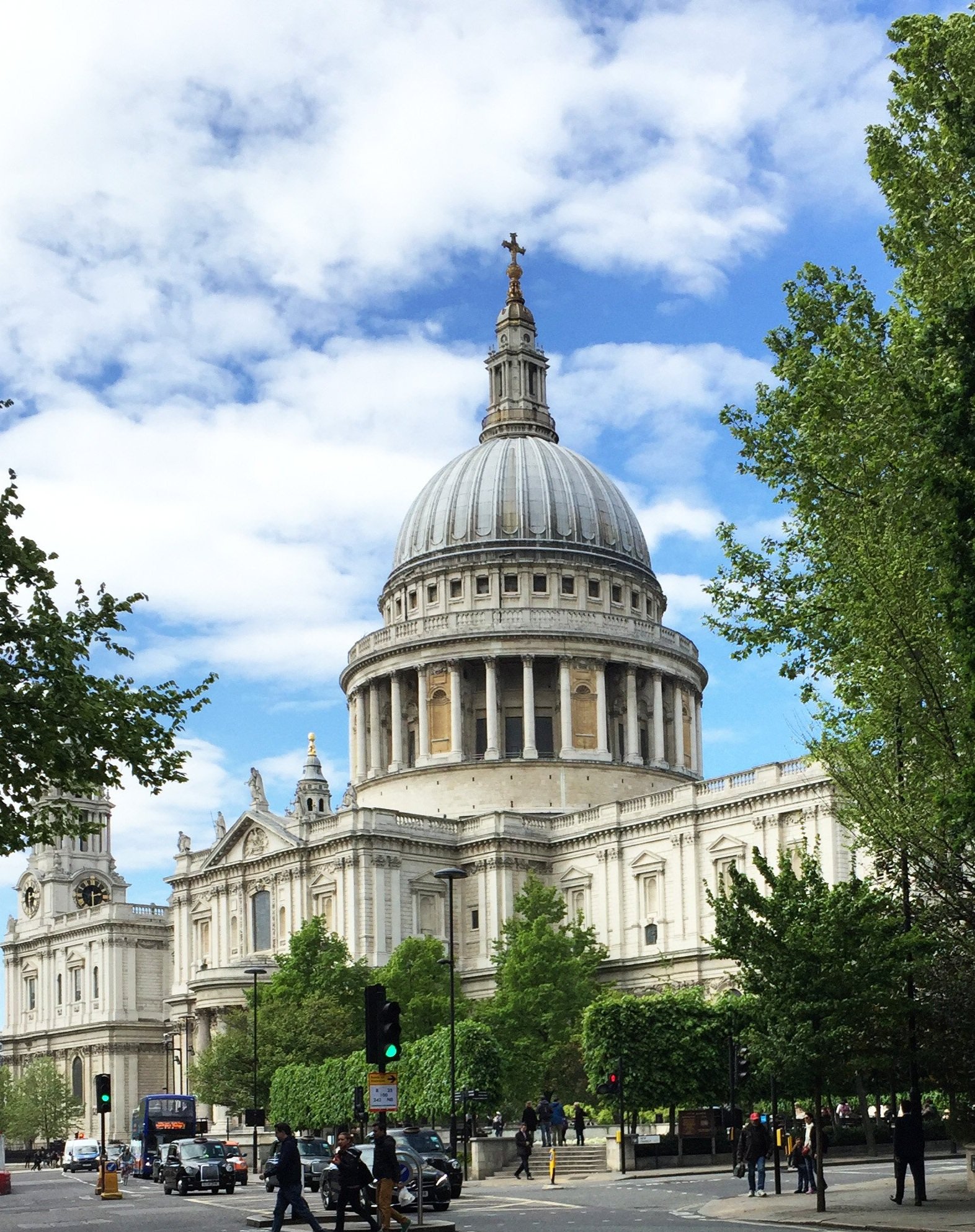
Sir Christopher Wren’s Place in the History of Architectural Practice- Celebrating 300 Years
We are delighted to announce this new SAHGB event.
This will be an online event.
Cover Image - St. Paul's Cathedral by © Stephen Gage
This year marks the 300 years since Wren’s death in 1723. For most of that time, Wren’s contribution has been discussed and considered leading to a prodigious body of scholarship. This lecture asks why Wren continues to occupy architectural historians today, whether there is still more to explore about this fascinating individual and in particular what place he occupies in the history of the architectural profession.
St. Paul's Cathedral by ©Stephen Gage
BIO
James WP Campbell is Professor of Architecture and Construction History and Head of the Department of Architecture at the University of Cambridge. He is Chairman of the Construction History and has published widely on the history of building construction and the development of the architecture profession. His PhD looked at Wren’s carpentry and he is author of Building St Paul’s.
Book a place
Calling SAHGB Members!
In celebration of Sir Christopher Wren, we have a collection of Summer events on our website, including an in-depth walking tour to Greenwich with lunch (now booking on our events calendar), and more lectures for special anniversaries. The Annual Conference ‘Constructing Coloniality’ (UCL, London, May) is open for bookings with a member discount.

Conference Talk: Greening the Desert
CONFERENCE: VISIONS OF WELFARE 2023
TALK: Greening the Desert
We invite you to this exciting conference talk, under the title Greening the Desert, as a part of the Visions of Welfare three-day conference discussing the role of women in the creation of the spaces of the post-war Welfare States.
The conference is co-hosted by the Women of the Welfare Landscape Project, the Society of Architectural Historians of Great Britain (SAHGB), and the Women in Danish Architecture project.
GREENING THE DESERT
Landscape Architect Diana Armstrong Bell gained a unique perspective on her discipline whilst working in the Middle East in the 1980s. Whilst employed at Atkins Sheppard Fidler, she learnt the fundamentals of greening the desert from women like Grace Kirkwood, consultant landscape architect for Kenzo Tange, and applied these ideas at the Arabian Gulf University, Bahrain – even setting up a plant nursery on site.
In this talk, Armstrong Bell will share the stories and inspiration that she drew from her experiences working in the Middle East as she re-trod the footsteps of Gertrude Bell (1869-1926), archaeologist, Arabist and writer. Diana will be joined in conversation by landscape architect, historian and horticulturist Karen Fitzsimon.
Booking information
Three-day conference tickets are available here. Ticketholders to the day conference will be eligible for free entry to the evening lecture, just use the discount code we will send in your confirmation email.
Conference participation and evening talk: £60 Standard - £45 Student - £25 Livestream
There are also tickets only for the ‘Greening the Desert’ talk for those not attending the conference.
£10 Standard
£5 Friend/Student/Young Friend
£5 Livestream
Tickets available here.

Conference: ‘Visions of Welfare’, Sessions on 2nd, 9th and 15th May
CONFERENCE: VISIONS OF WELFARE 2023
We are inviting you to Visions of Welfare, a three-day international conference discussing the role of women in the creation of the spaces of the post-war Welfare States, co-hosted by the Women of the Welfare Landscape Project, the Society of Architectural Historians of Great Britain (SAHGB), and the Women in Danish Architecture project. Speakers for the final day of hybrid presentations will include SAHGB leaders Dr. Elizabeth Darling, Chair, Dr. Luca Csepely-Knorr, Education Officer (co-organiser), and Holly Smith, student winner of the 2022 SAHGB ‘Hawksmoor’ medal.
The conference will comprise a series of fully online afternoon sessions on Tuesday 2nd and 8th May.
It concludes with a hybrid event hosted at the Garden Museum in London on Monday 15th May.
Presentations will consider the role of women in creating the spaces of the period of post-war Welfare States internationally with the aim of looking beyond individual achievements and professional boundaries. The conference will build on and further complicate recent, more discursive historiographies that better represent the complexity of how, and by whom, a built environment is formed and emphasise the diversity of women’s practices.
Tickets to this day conference at the Garden Museum also include access to two days of online sessions hosted by the SAHGB on Tues 2 and Tues 9 May.
The full Visions of Welfare programme is available here.
GARDEN MUSEUM DAY CONFERENCE PROGRAMME: 15 May 2023
09:30 – 10:00 Arrivals
10:00 – 11:00 Introductory Roundtable Discussion
Luca Csepely-Knorr, Elizabeth Darling, Svava Riesto and Henriette Steiner
11:15 – 13:00 Session 1
Salvatore Dellaria, Cornell University: “How People Wanted to Live”: The Southgate Estate and its Hidden History of Failure
Holly Smith, University College London: Management and Maternalism: Joan Demers (Estate Manager) and the construction of a respectable community at the Park Hill estate, 1959-1965
Eve Pennington, University of Manchester: Subverting the State? Working-class Women’s Transformation of Planned Spaces in Skelmersdale New Town, c.1970-1989
Noemí Gómez Lobo & Kana Ueda, University of the Basque Country, ETH Zurich: Rebuilding Japan through women’s magazines: Miho Hamaguchi’s postwar housing lessons
13:00 – 14:00 Lunch
14:00 – 15:30 Session 2
Helena Mattsson, KTH: Radical Bureaucracy: Women and Full-scale Experiment
Meike Schalk, KTH: Invisible Collectivity – Women in Large Architectural Offices in Sweden
Lisa Kinch, Lancaster University: Beyond the Operator: The Women Connecting the Welfare State
15:45 – 17:00 Session 3
Joy Burgess, University of Liverpool: Landscape Design as a ‘Self-Sown Seedling’
Sally Watson, University of Newcastle: ‘All Children need the opportunity to play’…. Women’s Play Advocacy in the making of homes for today and tomorrow
Alejandra Navarrete Llopis, KTH: Post Welfare Environments: Three women defining the Swedish environmental agenda from the 1980s
6pm – Talk Diana Armstrong Bell: Greening the Desert
Please note, tickets for the evening lecture Greening the Desert are booked separately from the day conference, here. Day conference ticketholders get free entry by using the discount code we’ll send in your confirmation email.
Booking information (Conference participation with code for booking ‘Greening the Desert’)
£60 Standard
£45 Student
£25 Livestream
All tickets include access to the online sessions on 2nd and 9th May. Access links will be emailed to ticketholders.

The Annual SAHGB Conference. Constructing Coloniality: British Imperialism and the Built Environment
CONSTRUCTING COLONIALITY: BRITISH IMPERIALISM AND THE BUILT ENVIRONMENT (REGISTRATIONS CLOSED)
Registrations are now closed for this three-day conference, hosted by The Society of Architectural Historians of Great Britain (SAHGB) in collaboration with UCL and the London School of Architecture. Discounted places are available for SAHGB members, students, and staff members of UCL and the LSA.
We look forward to meeting delegates and speakers who have registered for this event. Please look out for welcome emails from your conference organisers.
The conference takes as its theme the coloniality of architecture and heritage in relation to the British Empire, from the early years of expansionism and the escalation of the slave trade in the seventeenth and eighteenth centuries, through the physical and political force wielded in the nineteenth and early twentieth centuries and the development of racial capitalism, to the subsequent and ongoing struggles for independence, freedom and justice.
Note - May 2023 - Public Transport in London: As train strike dates have now been announced, which may affect travel to some extent, we recommend checking up-to-date timetables from your own operator before you travel, exploring alternative methods if possible, and checking national information
The Destruction of the Roehampton Estate in the Parish of St. James's in January 1832, 1833 (hand coloured litho)
Creator: Adolphe Duperly (1801-65) | Credit: Photo © Christie's Images / Bridgeman Images
Full programme:
Note - May 2023 - Public Transport in London: As train strike dates have now been announced close to the conference dates, which may affect travel to some extent, we recommend checking up-to-date travel timetables from your own operator before you travel, and national information
PRE-CONFERENCE KEYNOTE LECTURE: Thursday, 11th May 2023
18.00–19.00 Drinks reception in the foyer of the Bartlett School of Architecture
19.00-20.30 Nnamdi ELLEH:
Decolonizing Decolonisation: Ideological Continuity and Discontinuity in Colonial and Postcolonial Imaginations of Modernity
DAY 1: Friday, 12th May 2023
9.30 – 10.00 Greeting by Prof Elizabeth McKellar, President of SAHGB
Followed by Opening Remarks by Dr Eva Branscome
10.00 - 12.30 Session 1: The ARCHITECTURAL GRASP
Chair: Elizabeth McKELLAR
10.00 Chair's Introduction
10.10 Ireland as an experimental ground for British architecture
Murray FRASER
10.30 “Yon Empress of the North”: Edinburgh’s New Town as a city of Empire
Amy ORNER
10.50 Colonial inspirations, regional development: The case of Baroda state, British India
Karan RANE
11.10 Professional entanglements: British colonial networks of architecture
Soon-Tzu SPEECHLEY + Julie WILLIS
11.30 Fictional Functional Reports: Inhabiting the gaps of environmental reports at KNUST’s Faculty of
Architecture, 1963-2023
Albert BRENCHAT-AGUILAR + Ato JACKSON
11.50 Questions & Discussion
12.30 - 14.00 Lunch Break
14.00 - 16.00 Session 2: MILITARIZED SPACES OF EMPIRE
Chair: : Megha CHAND INGLIS
14.00 Chair's Introduction
14.10 Tai Ping Shan’s spatial injustice: Colonial Hong Kong during the 1894 bubonic plague
Jasmine CHAN + Patrick CHIU + Patrick HWAN
14.30 The police building as image: Station architecture in British Colonial India
Mira Rai WAITS
14.50 Colonial legacy and state building in Palestine: Architectural investigation
Anwar JABER
15.10 Legacies of violence and trauma: Covert surveillance during Belfast’s “Troubles” and Kenya’s
“Mau Mau Uprising”
Karin ELLIOTT
15.30 Questions & Discussion
16.00 - 16.30 Tea Break
16.30 - 18.30 Session 3: NETWORKS OF TRADE AND INDUSTRY
Chair: Nnamdi ELLEH
16.30 Chair's Introduction
16.40 Military ports and trading forts of Konkan: Geospatial analysis of architectural evidence of
European expansionism from the 16th to 18th Centuries
Mrudula MANE + Pushkar SOHONI
17.00 Telegraphy and financial sovereignty at the India Office
Matthew WELLS
17.20 The architecture of industrial crops production and extraction: Lever Brothers’ intercolonial and
trans-imperial networks of industrialisation in Africa
Michele TENZON
17.40 “Save our statues”: The attempt to relocate a Cambridge chapel memorial to an investor in the slave trade slave trade and what happened next
Veronique MOTTIER
18.00 Questions & Discussion
18.30 Finish
DAY 2: Saturday, 13th May 2023
10.00 - 12.30 Session 4: OBJECTIVES OF EMPIRE
Chair: Neal SHASORE
10.00 Chair's Introduction
10.10 A crimson thread? The cumulative effects of race, nation and empire in British architectural
discourse, c.1850-1920
Alex BREMNER
10.30 Buildings and blueprints: Knowledge, power and colonization
Vimalin RUJIVACHARAKUL
10.50 A King, a Queen, and a statue in-between: Stabilizing colonial instability in Bangalore
Sonali DHANPAL
11.10 Fields architecture: The central farm and the production of colonial knowledge in Canada, 1889–
1939
Émélie DESROCHERS-TURGEON
11.30 From the National Gallery to the world: Museum climate as British Standard
Nushelle DE SILVA
11.50 Questions & Discussion
12.30 - 13.30 Lunch Break
13.30 - 16.00 Session 5: INFRASTRUCTURES OF LIFE AND LAND
Chair: Vimalin RUJIVACHARAKUL
13.30 Chair's Introduction
13.40 A bittersweet heritage: Slavery, architecture and the British landscape
Victoria PERRY
14.00 Schooling the Mufassal: Educational space in small-town Bengal, Colonial India
Tania SENGUPTA
14.20 Developing capable women: Coloniality, landscape and post-war reconstruction in Britain and
abroad
Camilla ALLEN + Luca CSEPELY-KNORR
14.40 Ecologies of vulnerability: Post-cyclone reconstruction in Mauritius, 1945
Alistair CARTWRIGHT
15.00 The “Bod Ose” & Krio architecture story telling the history of a tribe
Bijou HARDING
15.20 Questions & Discussion
16.00 - 16.30 Tea Break
16.30 - 19.00 Session 6: POSTCOLONIALISM AND ITS HERITAGE
Chair: Eva BRANSCOME
16.30 Chair's Introduction
16.50 “Not in the usual sense”: Anthony D King and the origins of critical colonial architectural history
Mark CRINSON
17.10 The traces of imperialism in Nigerian architecture
Ola UDUKU
17.30 Building a “Little England”: Architectural legacies and postcolonial conversions in a case
study from Barbados
Anna BISHOP + Niall FINNERAN
17.50 The Georgian isles: Angus Acworth’s heritage legislation in Jamaica and England
Sean KETTERINGHAM
18.10 Coloniality and the Politicisation of Literary Heritage Conservation
Alan CHANDLER + Caroline WATKINSON
18.30 Questions & Discussion
19.00 – 19.10 Break
19.10 – 19.30 Conference summation by Dr Neal Shasore
19.30 Finish
DAY 3: Sunday, 14th May 2023
10.00 - 12.00 STUDY TOURS
Tour 1: Heart of Empire?
This walking tour is about rediscovering the traces of the British colonial slave trade in the City of London – as the financial centre of Empire - as they are inscribed into the urban fabric. The money harvested through this form of exploitation starting in the C16 was a key component of the capitalist structures that became enacted by these buildings. Within the City of London this very particular urban environment arguably perpetuates the resulting systemic inequalities even today. As the City continues to rebuild itself this capital is reinvested, and the traces become ever more obscure. Some have disappeared altogether, but if we learn how to re-read them again through buildings, their sculptural ornamentation, the names of pubs as well as those of streets, the transatlantic trade with human beings becomes again apparent and is everywhere.
Dr Eva Branscome is an Associate Professor at UCL’s Bartlett School of Architecture. Originally trained as an interior architect, her research work follows two strands: the links between built heritage and cultural practices in contemporary cities, and the modern architectural history of Central Europe. She is the author of Hans Hollein and Postmodernism (2018), the first major monograph on that Austrian architect-artist.
Tour 2: Ebb and flow of Empire: Tracing coloniality along the Thames
Starting at Somerset House on the Strand and ending in the rebranded ‘Royal Greenwich’, this tour will use our route down the river by boat as a way to trace and interrogate the impact of imperial expansion, exploitation and extraction on London from the seventeenth century onwards, in the form of landmark buildings and monuments, in the city’s urban development, and in the nature of the Thames itself. We will consider the ways in which architectural projects of different kinds – and their representation – manifested and communicated the empire to Londoners and visitors to the capital, as well as contemporary approaches to dealing with their difficult legacies. NB This tour will last 3-4 hours, but with opportunities to disembark and continue alone! The boat fare is funded by the Survey of London, but you will need to make your own way back from Greenwich (very easy on the DLR or mainline railway).
Dr Emily Mann is Associate Professor of architectural history, race and spatial justice at the Bartlett School of Architecture, UCL, where she is a member of the Survey of London team. She previously taught at the Courtauld Institute of Art, where she introduced the MA in ‘Architectures of Empire: Contested Spaces and their Legacies’.
Tour 3: End of Empire: The Americanising of Mayfair, c. 1900–1970
The decline of the British Empire from the late-19th century was accelerated by – and at least partially caused by – the rapid emergence of the United States of America as the wealthiest and most powerful capitalist nation. By around 1900, surplus capital in the USA was already finding its home in the hitherto predominant nation of Britain, a country with whom of course the US shared strong ethnic, economic, social and cultural links. This walking tour retraces the impact of US capital and culture on London’s wealthiest district during the twentieth century, with Mayfair being steadily transformed into a de facto ‘American Quarter’. Highlights range from Selfridges department store through to the Hilton Hotel, taking in along the way Eero Saarinen’s former US Embassy and other significant examples.
Prof Murray Fraser is Professor of Architecture and Global Culture at the Bartlett and a former SAHGB Chair. His book Architecture and the 'Special Relationship' (2007) won the RIBA Research Award and Zevi Book Prize. He edited the 21st Edition of Sir Banister Fletcher’s Global History of Architecture (2020), awarded the Colvin Prize.
Tour 4: The Sanatan Hindu Mandir, Alperton (2010): Belonging, temple building and the transnational process
Our visit will focus on the transnational alliance between East African Indian communities forced to migrate to the UK in the 1970s, families of hereditary temple builders operating out of India, and British architects and engineers performing the role of ‘translators’, in the realisation of the Sanatan Hindu Mandir in Alperton. Inaugurated in 2010, the process of design, off-site production, and assembly of this hand-carved load bearing stone temple reveals a creative pulling together of ritualised building knowledges, colonial archaeology, modern technologies, and new ‘diasporic’ spatial imaginaries. While these conjunctures disrupt colonial epistemologies in profound ways, they also prompt broader questions about a crisis in production and the very imagination of the Indian temple in modern architectural history.
Dr Megha Chand Inglis is Associate Professor at the Bartlett School of Architecture. Her research is focussed on Indian hereditary temple builders and their lived experience of design, production, and architectural history in colonial, postcolonial and diasporic contexts. Megha recently co-curated a special issue of the journal ARQ - on the Indian temple and modernity - and is currently working on a book on the Sompura temple builders of western India.
The conference organisers are Dr Eva Branscome (Bartlett School of Architecture) and Dr Neal Shasore (London School of Architecture), with advice from an International Academic Committee.

Squares Within Squares: Peter Womersley and the Development of the Plan
We are delighted to announce this new SAHGB-IHR event.
This will be a hybrid event, taking place online and in person at the Institute of Historical Research, Pollard N301 (3rd Floor, North Block of Senate House, Malet St, London WC1E 7HU).
Cover Image - Plan: Roxburgh County Offices, Newton St Boswells, 1960-68. ©Neil Jackson
Peter Womersley (1923-93) was an English architect who built mostly in the Scottish Borders, where he lived. Although his output was limited, he was highly regarded in his day and nine of his buildings are now listed – six in Scotland and three in England. Even so, he is now barely remembered. Trained at the AA in the early post-war years, he was an architect who worked from the inside out, first developing the plan and then, through the use of models, the building’s envelope.
Given by former President and SAHGB Council Member, Professor Neil Jackson, this seminar shall examine Womersley’s evolution of the plan, his corresponding use of structure and the external influences upon his work. The seminar coincides with the publication, by the Twentieth Century Society, Historic England and Liverpool University Press, of the first book on Peter Womersley, authored by the speaker.
It is hoped that copies will be available for purchase at a discounted price by attendees on the day.
High Sunderland, Galashiels, 1955-58. Image ©Neil Jackson
BIO
Neil Jackson is Professor Emeritus of Architecture at the University of Liverpool and a Past-President of the SAHGB. An architect and a historian of nineteenth- and twentieth-century architecture, he is the author of Pierre Koenig: A View from the Archive (2019), Japan and the West: An Architectural Dialogue (2019) and the prize-winning Craig Ellwood (2002).
Bookings now closed - we are unable to forward the joining instructions for new requests on this form
Calling SAHGB Members!
Please explore our Summer events on our website: the Annual Conference ‘Constructing Coloniality’ (UCL, London, May), a Study Visit to Greenwich (now booking), and celebrations of Wren and Jones for 2023. Sincere thanks for your support.

For the Glory of God: the Church Façades of Galeazzo Alessi
We are delighted to announce this new SAHGB-IHR event.
UPDATE: Due to train strikes on the day, this event will now be ONLINE ONLY through Zoom. A link will be circulated to all who registered the morning of the event. Thank you for understanding.
Taking as its focus three façades designed by Galeazzo Alessi (1512-1572) for the churches of Santa Maria Assunta in Genoa, Santa Maria presso San Celso in Milan and Santa Maria degli Angeli in Assisi, this paper explores the concept of cultus externus and the appropriate use of architectural decoration in a religious context.
As will be explored, the argument for cultus externus - that is, the idea that a church should be as magnificent and beautiful as possible because it is a reflection of God - took on renewed importance in the mid-sixteenth century, as Catholic reformers mounted a defence against the protestant’s criticism of ostentatious churches. In Alessi’s case, the argument for cultus externus permitted him to let loose his imagination, resulting in the case of Santa Maria presso San Celso in one of the most inventive and animated church façades of the Italian Renaissance. However, such abundance of decorative detail was not always possible, as can be seen in the case of Santa Maria degli Angeli, which despite what had come before in Alessi’s Milanese works, shows much more restraint - a factor that was no doubt due to the conservative nature of his Observant Franciscan patrons.
Through the discussion of these three façades, Alessi is revealed to have been a highly inventive architect, a man well-versed in the religious debates of his day and someone who adapted their style to the needs of his patrons and created some of the most magnificent churches of the period.
Facade of Santa Maria presso San Celso (by Rebecca Gill).
BIO
Rebecca Gill is Morgan Fellow at the Ax:son Johnson Centre for the Study of Classical Architecture at Downing College, Cambridge. She is currently writing her book, Galeazzo Alessi and the Architecture of the Catholic Reformation and has published on various aspects of Alessi’s career, including his use of architectural drawings. She also curated the National Gallery’s exhibition, Virtual Veronese.
Book a place
Calling SAHGB Members!
Annual membership renewals are now due, with full guidance on the Support Us page.
Sincere thanks for your support through 2022. Please get in touch if you have any questions.

The SAHGB Annual Lecture. Badovici’s Eclectic Modern: The Vézelay Houses
Tim Benton, Professor Emeritus of Art History at the Open University, will give the 2023 SAHGB Annual Lecture. This will be an in-person event with a link to view for remote attendees, at the University of Cambridge.
If you are interested in the SAHGB’s 20024 Annual Lecture, please see the What’s On page for our Spring Programme.
Remote Zoom places will be bookable until 3pm - please register below and look out for the auto-reply email with the joining link if you are booking on the day of the event.
In the year 1927, Jean Badovici was invited to the ancient Burgundy town of Vézelay by his friend and neighbour Georges Renaudin, who had bought, with the help of his partner Olga Battanchon, two small stone houses on the Western ramparts of the town. This first glimpse of Vézelay would lead to an extraordinary flourishing of Badovici’s work through the years 1927 to 1930; alongside his editorship of the biannual review L'Architecture Vivante and work in progress with Eileen Gray on E-1027, the maison en bord de mer, he swiftly purchased properties all over Vézelay, restoring two of them for himself.
Unlike the radical modernism of E-1027 or the canon of modernist buildings that Badovici was assembling in the editions of L'Architecture Vivante, Badovici’s approach was one that respected local materials and genus loci, while achieving the creation of modern spaces within cramped constraints. Le Corbusier praised Badovici's house in the pages of La Ville Radieuse in terms never offered to another architect,
Professor Tim Benton, a widely-cited expert on the work of Le Corbusier and Eileen Gray, will present a fascinating exploration of Badovici's approach to his work on the modest Vézelay buildings - his modus operandi, and what he achieved, for which there is no precedent at that date. Professor Benton’s research draws on the correspondence between Badovici and Renaudin, which included detailed sketches, but, just as importantly, brings in the consideration of further texts from the Badovici archive at the Getty Research Institute.
BIOGRAPHY
Tim Benton is Professor Emeritus of Art History at the Open University. His work on Le Corbusier is very widely cited; his book on the Villas of Le Corbusier (first edition in French, 1984) has gone through several editions and now exists in French, English and Italian editions. In a series of important articles Benton extended the research of this classic text.
His book The Rhetoric of Modernism. Le Corbusier as lecturer (2007) was awarded the prestigious Grand Prix du Livre sur l’Architecture by the Academie de l’Architecture, Paris and is currently available in French and English editions. The book Lc Foto: Le Corbusier: Secret Photographer was published by Lars Mueller Publications in July 2013. He has further introduced a new edition of the English language publication of Le Corbusier’s Precisions (1930), Schediegger and Spiess, 2015.
More recently, Tim Benton has been working with the Association Cap Moderne on the restoration of the villa E-1027, Le Corbusier's cabanon and the Étoile de mer and Unités de camping at Roquebrune-Cap-Martin, publishing a book Le Corbusier, peintre à Cap Martin (Paris 2015), which was awarded the Prix du Livre de la Méditérrannée. He also wrote the official guide to the Cap Moderne site, published by the Éditions du Patrimoine and contributed a chapter to Cohen, J.-L., et al. (2021) E1027: Renaissance d'une maison en bord de mer (Paris, Éditions du Patrimoine).
Other recent publications include:"Description of E-1027." (2021) West 86th 28(1): 96-131,"Eileen Gray’s Jean Désert showroom 217 Rue du Faubourg Saint-Honoré, Paris ; marketing design in the 1920s." (2021) Cahiers de la Recherche Architecturale Urbaine et Paysagere (online journal),"Penetrating the interior: Instinct, fear and pleasure" in Book for Mary; Sixty on Seventy (2020), I. Lehkozioiva and J. Ockman. Brno, Quatro Print: 28-35 and "Milieu, spirit, flesh and fusion in Le Corbusier's life and work." ZARCH 17:12-40.
An article on an aspect of the Vézelay work is going to press with the Journal of Design History.
Registration Form
Please process payment only once and look out for an email that confirms your booking. There is no instant pop-up window that follows the payment page.
Architectural History Diary
After a successful period of virtual events, we now run certain activities with hybrid and face-to-face options. If you would like to advertise your event through the Architectural History Diary please email info@sahgb.org.uk.
Past Events
-
July 2022
- 24 Jul 2022 Oral History of British Architectural Historian 24 Jul 2022
-
April 2023
- 21 Apr 2023 Elain Harwood (1958 - 2023) 21 Apr 2023
- 24 Apr 2023 John Newman (1936 - 2023) 24 Apr 2023
-
July 2023
- 4 Jul 2023 The SAHGB Study Tour to Manchester: September 2023 4 Jul 2023
- 5 Jul 2023 RIBA Library and Collections Survey: thank you for your engagement 5 Jul 2023
-
October 2023
- 16 Oct 2023 Launch of a new SAHGB fund for publications in memory of Mark Girouard 16 Oct 2023
-
January 2024
- 15 Jan 2024 A New Year message from the SAHGB Chair and Honorary Secretary 15 Jan 2024
- March 2024




